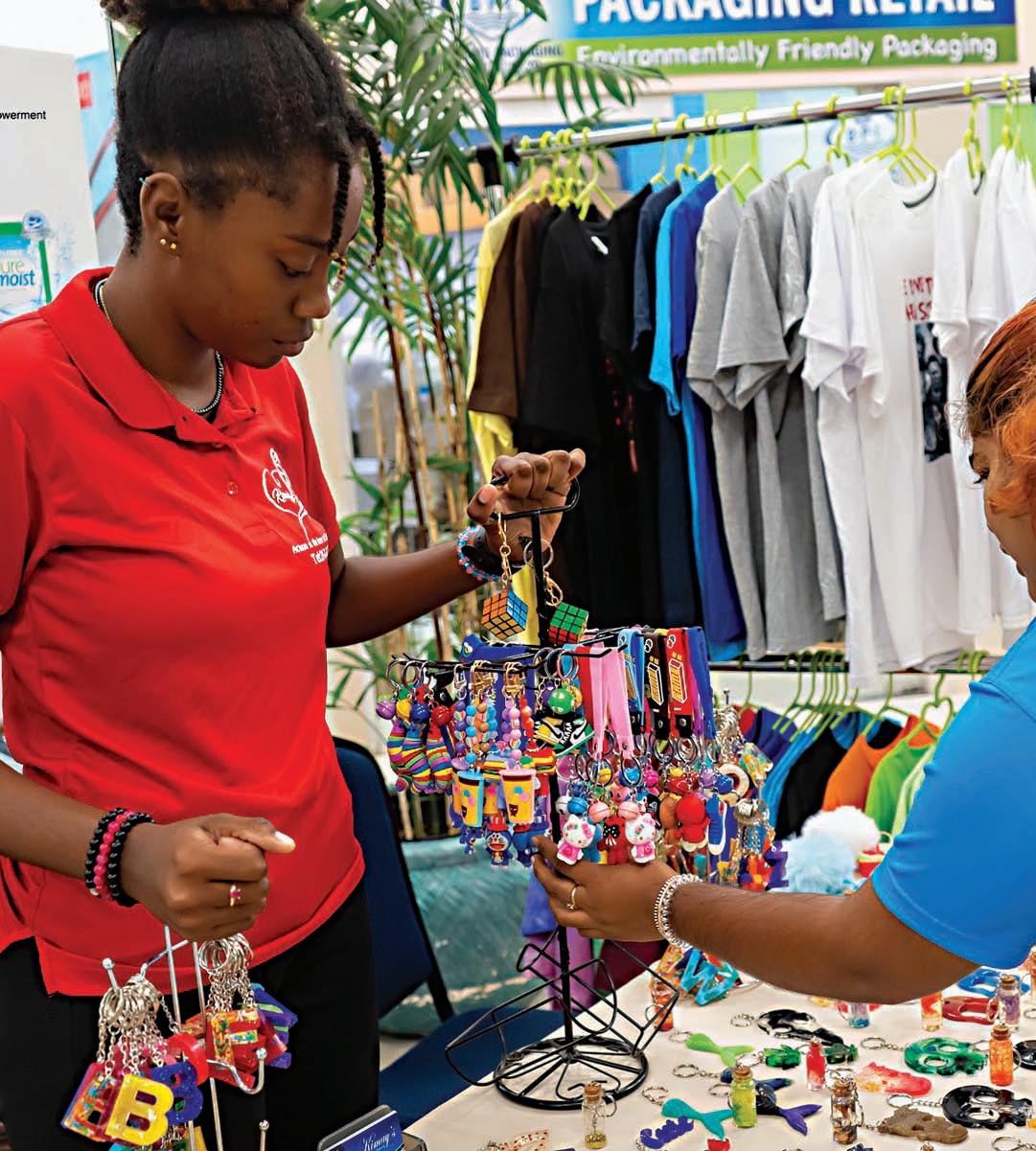

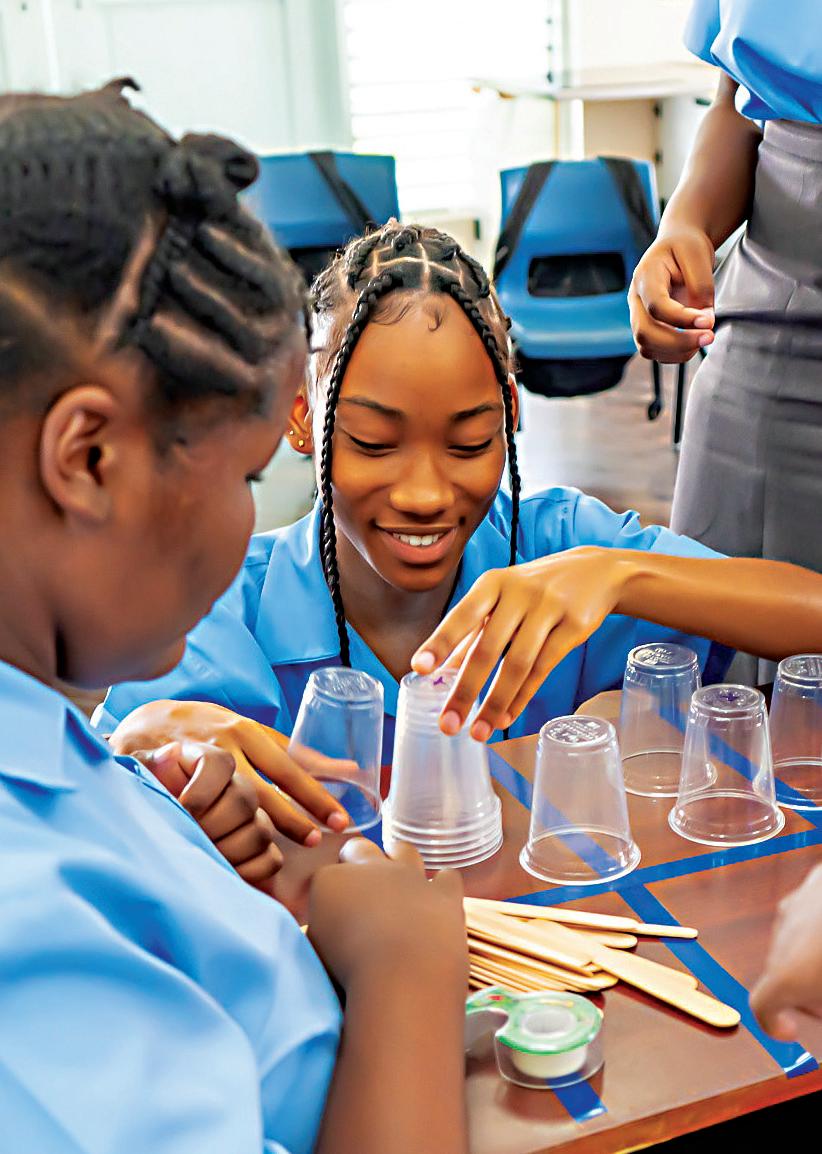
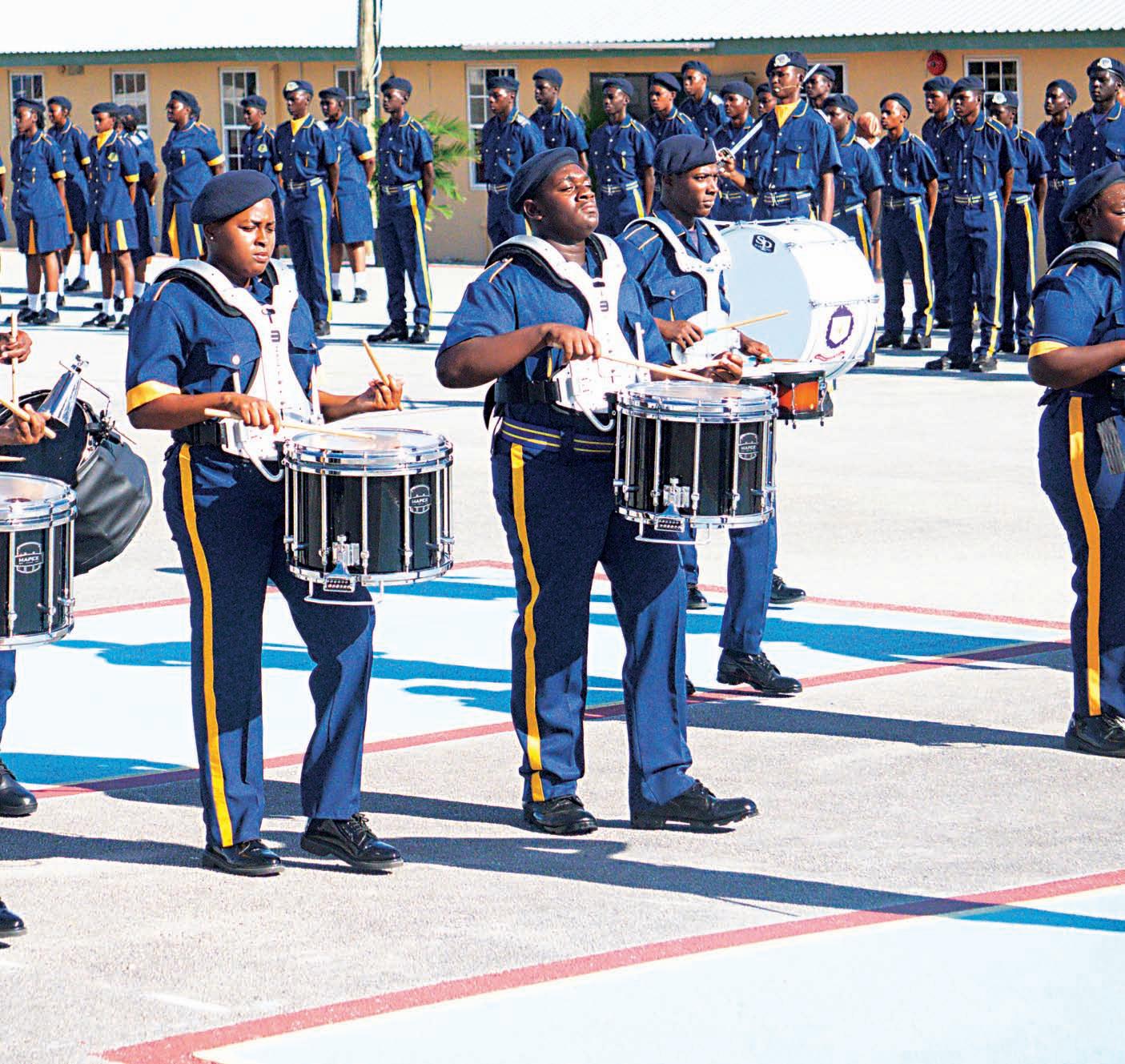











FOR THREE DECADES , the Division of Youth Affairs and Culture has been more than just a government agency. It has quietly supported a generation of Barbadians, helped dreams take flight, and provided essential support for potential. Barbados has seen significant changes since the Division started in 1995, but its goal to mentor, empower, and uplift young people has not wavered. From the disciplined ranks of the Barbados YouthADVANCE Corps to the entrepreneurial spirit fostered by the Youth Entrepreneurship Scheme, many lives have been transformed through intentional opportunities. As we celebrate this 30-year milestone, this 24-Page feature highlights the rich stories of this division and how its work has shaped the nation’s future. (SD)
Message Prime Minister of Barbados, The Hon. Mia Amor Mottley, S.C., M.P. to mark the 30th anniversary of the Division of Youth Affairs.
THIRTY YEARS AGO, the Government of Barbados took the deliberate decision to establish the Youth Affairs Department, now the Division of Youth Affairs
While the National Commission on Youth provided great insights and early direction, we recognised that our country could not succeed if we did not give the mission of developing our young people a permanent seat at the centre of our national development.
It was a watershed moment not just for Barbados, but for the region, as it represented the first fully staffed, dedicated youth agency in the English-speaking Caribbean. And with its creation, we said to the world that our young people deserved not only our attention, but also our investment, our trust, and a permanent place at the heart of national development.
Three decades on, the Division has evolved with the times, but the mission remains clear. We are standing with our young people at every stage of their journey, empowering them to become world class and to dream bigger for themselves, their families, and their country. I’m happy to report that over these three decades, the Division of Youth Affairs has lived up to that vision.
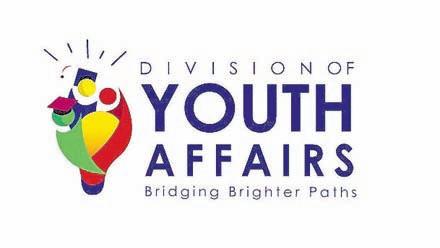
Whether through the Barbados YouthADVANCE Corps, the Youth Development Programme, Youth Entrepreneurship Scheme, Block Transformation Unit, Pathways Employability Programme or our recently concluded National Summer Camps, we have supported thousands of young Barbadians, providing them with the skills, guidance and opportunities needed to
chart their own paths in a world that grows more complex and demanding each year.
As the first Minister of Youth and Culture, I have seen first-hand how our nation has benefited from the work of the Division of Youth.
Indeed, every aspect of our country’s development, whether through the business community, Government, the arts, sports, and community leadership, have benefited tremendously from the Division of Youth’s work. It is clear proof that when we invest in our youth, we invest in the prosperity of Barbados itself.
So, as we look ahead, the task before us is to ensure that the next 30 years are even more impactful than the last. The challenges our young people face today, the climate crisis, rapid technological shifts, conflict, trade issues and global uncertainty, all require a renewed sense of resilience, as much as it will require creativity and courage.
I have no doubt that our youth are ready to meet this moment. Equally, I know the Division of Youth Affairs will continue to listen, to innovate and lead in equipping our young people with the tools to excel in these challenging times.
It is for that reason I pay tribute to the Minister of Youth, Sports and Community Empowerment, Charles Griffith, Director of Youth Affairs, Cleviston Hunte, the staff, past and present, who have carried the mission forward with passion and dedication.
Congratulations on 30 years of outstanding service. May the next chapter of this journey be one of even greater promise and purpose for the young people of our beloved country.
– THE HON. MIA AMOR MOTTLEY, SC, MP., Prime Minister
Message from the Hon. Charles Griffith, M.P. Minister of Youth, Sports and Community Empowerment to mark the 30th anniversary of the Division of Youth Affairs.
TO FACILITATE THE NEEDS and aspirations of all Barbadian youth by creating conducive environments and opportunities for growth, development and achievement through policies, youth engagement, programmes, initiatives and activities.
AS MINISTER OF YOUTH , Sports and Community Empowerment, I am deeply honoured to celebrate the 30th anniversary of the Division of Youth Affairs – Barbados’ cornerstone institution for youth development since 1995. Yet this milestone holds a profoundly personal meaning for me. In June 1995, I stood among the 32 pioneering youth commissioners entrusted with launching the Youth Development Programme, one of the three programming channels of the Division of Youth Affairs. The others being the Youth Entrepreneurship Scheme and the then Barbados Youth Service, now the re-engineered, impactful Barbados Youth ADVANCE Corps, with bolder and more dynamic training tools to instil greater purpose in the lives of young men and women aged 16 to 20 years. For 23 years, I walked the journey alongside a team of committed young men and women – not just as a public servant, but as a believer in the boundless potential of our nation’s youth. I remember going into the districts of St John and later across many other communities in Barbados, interacting with young people, listening to their triumphs and trials and hearing their dreams. It was through this firsthand experience that I understood the significance of youth engagement, opportunities, leadership and most of all service.
Over the years, I witnessed firsthand the transformative power of strategic investment in young people, and the ripple effect it had – and continues to have – on families, communities and the nation at large.
Four years ago, I rejoined the ministry in a new capacity –this time, not only to serve, but to strategically shape and
strengthen the architecture of its policies, programmes and initiatives. The ministry of Youth, Sports and Community Empowerment is a dynamic ecosystem of departments, each committed to uplifting our nation’s youth and communities. As Minister, I am now deeply involved in policy development, strategic decision-making, and vision-setting; roles that allow me to once again contribute meaningfully, to the division’s evolving legacy. With this responsibility comes a profound sense of purpose, and I remain steadfast in my commitment ensuring the Division of Youth Affairs and the ministry as a whole, continue to fulfil the mandate with excellence and impact.
The reintroduction of the National Youth Awards in 2023 marks a renewed commitment by the Ministry of Youth, Sports and Community Empowerment to celebrate the achievements, contributions, and diversity of youth engagement across Barbados. First launched in 2005, the awards experienced a hiatus from 2009 to 2023. Its revival signals not only a return to honouring excellence, but also a broader recognition of the vital role young people play in shaping national development across a wide range of disciplines and interests.
This recommitment is further reflected in the expansion of our services, including the Project Protégé Mentorship Programme, the Youth Support Hotline, the enhanced Pathways Employability Programmes, and the roll-out of the Youth Entrepreneurship Scheme’s Community Labs into multiple locations, bringing resources closer to the communities where they are most needed.
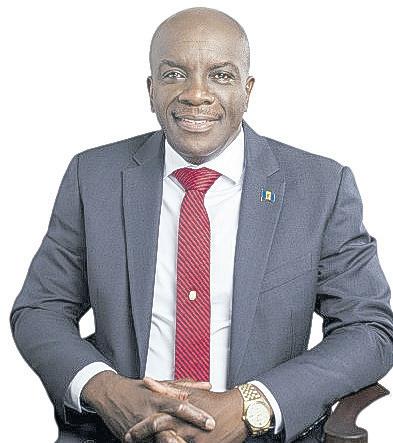
The Division of Youth Affairs’ work is guided by continuous feedback through surveys, community engagement, and the integration of sports, culture, vocational training, and life skills development. We also prioritise forging strong partnerships with local, regional,
stories by SANDY DEANE
W‘Thirty
years later, Carter feels proud that the DYA has endured and continues to be a “viable
department” that offers essential services.’
HEN RICHARD CARTER WALKED into the building housing what would become the Division of Youth Affairs on the corner of Jemmott’s Lane and Bay Street 30 years ago, it was empty.
But he had a passion for people, and with two colleagues, Hally Haynes, the Principal Youth Development Officer, and Colin Clarke, the Senior Youth Commissioner for the Central Zone began the work of the Division of Youth Affairs
“So we came in and found nothing, actually. We were charged with the responsibility of building and creating a Division of Youth Affairs on the basis of nothing more than the policy decision of the relatively new government that had come into power and was establishing for the first time in the history of Barbados, a separate division responsible for managing youth development.”
They immediately got down to work with a clear mandate from “a young and energetic” Minister [of Education, Youth and Culture] Mia Mottley to create a research-driven, grassroots approach to youth development.
They hired 32 Youth Commissioners to act as the eyes and ears on the ground, establishing a structure that could literally reach out to communities. Their next step was to conduct intensive research.
“So it wasn’t based on anything that was plucked out of the air. It wasn’t based narrowly on the views and perceptions of ourselves as technical people. It was based and grounded in what the research told us,” Carter said.
This effort laid the groundwork for every programme that followed.
The Division successfully created the Youth Development Programme that was designed to work in communities and the Youth Entrepreneurship Scheme, a direct response to youth unemployment, which has helped thousands of young people start their own businesses.
It was also able to open up opportunities for young people interested in arts and culture by linking them with the National Cultural Foundation (NCF) and it also launched a sports programme in collaboration with the National Sports Council and some trainers for young people interested in football, cricket, and basketball.
“So that was the philosophy and the approach that we took. Identify the need, the interest, and try to match the need for opportunity through the rolling out and development of programmes and responding directly. None of this matching took place in our offices. All of this matching took place through Youth Commissioners coming and knocking on your door and saying, what are you interested in? How can I help? How can I respond to that need?”
“The Division went on to set up a Block Committee in response to youth violence that was led by the current Minister of Youth Charles Griffith and later the
Barbados Youth Development Council, which charted a course for young people to become youth leaders.
“The first two leaders of the Barbados Youth Development Council that we mentored – the first one was Shantal Munro, as she was then, who is now Dr Shantal Munro Knight, Minister in the Prime Minister’s office. The second one was Chad Blackman, who was a CARICOM Youth Ambassador and President of the Council, and now Minister of Education.”
For Carter, the most meaningful aspect of the work was watching young people “take charge of their future”.
“Seeing young people who told us, ‘Were it not for this programme, I would be in the hospital, the cemetery, or prison’; seeing young people who were just inches away from either being killed or killing people, turning out to be productive citizens,” he recalled.
Thirty years later, Carter feels proud that the DYA has endured and continues to be a “viable department” that offers essential services. However, he has two regrets.
He regrets that a survey – introduced during his tenure to capture the aims and needs of every young person leaving school to ensure they remain on the right track – is no longer in place.
More so, he regrets that in 2000, he presented a concept paper for a National Youth Service — a programme which he insists would instil values and a sense of civic duty in all young people. The paper was never acted upon.
Against the backdrop of much concern about the current high level of youth violence, Carter recalls, “We had 20 homicides in Barbados that year [1995].” While he acknowledges that issues related to crime and violence are complex, he believes a national service could have provided the guidance to save countless young lives.
“Last year, I believe there were 49 [homicides], I believe as of today there are 35 or so homicides in Barbados. Now, I’m not saying that there’s a direct link between a reduction in homicide and other crimes – and so on – and the establishment of Barbados’ national youth service. But as somebody who spent more than 40 years conducting research and writing about youth development and social issues in Barbados, I can say without fear of contradiction that the establishment of a national youth service programme would have saved a lot more young people.
“Many of these young people could have benefited from a programme of structured engagement into the values, the morals and so on of what it’s like to be a citizen of Barbados.”
Despite this disappointment, he firmly believes in the DYA’s work.
“The DYA’s legacy is that it has endured,” he concluded. “It has stayed relevant and has remained at the forefront of youth development in Barbados.”


RICHARD CARTER, First Director of Youth Affairs. (FP)
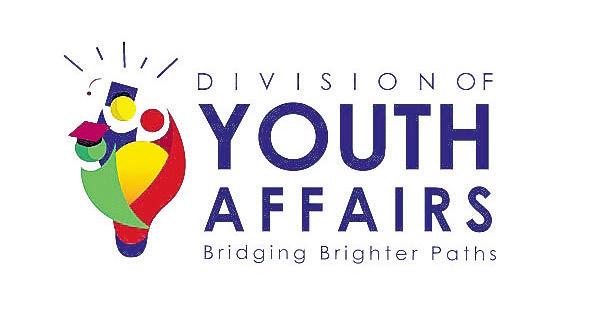


Email: sales@ocean-fisheries.com
Monday – Friday 8am to 4:30pm and Saturdays 8am to 12 noon


COLIN CLARKE, former Principal Youth Development Officer. (GP)
IN THE EARLY 1990s, a youth study showed that many young Barbadians felt they had no future in their own country.
This finding led then-opposition Senator Mia Mottley to visit communities and listen to their concerns. On her team for this important consultation was a young Colin Clarke, a youth volunteer who would later be one of three persons who built out the Division of Youth Affairs (DYA).
“We went in, Mr Richard Carter, Mr Hally Haynes, and I,” Clarke recalled, describing how the three of them started with an empty building and a big mission.
He remembers their first task was to implement a research-based project. They divided the country into 32 youth districts, using youth population data rather than constituencies. Once the Youth Commissioners were ready, the real work began. Each of them had to “map” their district by identifying every street, house, and community group. This process was followed by a national youth survey, which provided the evidence needed to create programmes rooted in what the youth wanted.
That evidence-based approach led to the establishment of the DYA’s key programmes, like the National Sports Training and the National Culture Training Programmes.
“These were not just activities; they were structured, 40 contact-hour courses covering everything from cricket and football to painting, ceramics, and dressmaking,” Clarke said, noting that the youth received the programmes with enthusiasm.





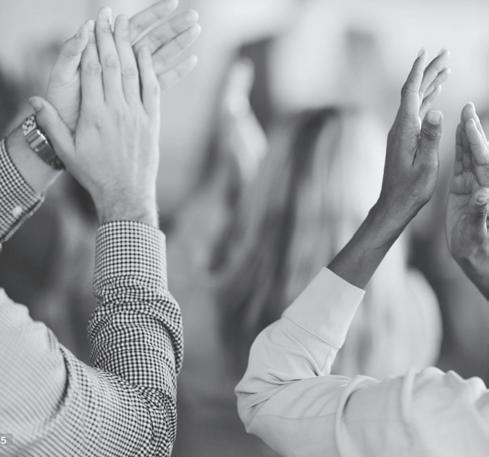
“If we did a sports training programme in volleyball in New Orleans, it was because the young people in New Orleans showed an interest in volleyball.
“Similarly, we did a sports training programme in Haynesville, we did cricket in Haynesville, and most of the young people showed strong interest.”
Clarke watched hundreds of lives change.
Admitting there are too many stories to recount, he, however briefly shared three stories.

Nicholas King: A young videographer whose first exposure to his craft came from the DYA’s digital media programme. He would borrow equipment from the DYA offices to follow his passion and is now a respected professional in his field.
Shenelle Beckles: Her first experience with volleyball was at the DYA’s sports training programme. That training set her on a path that led to her becoming the captain of the Barbados National Volleyball Team.
Ryan Hinds: He developed his game through the Youth Development Programme at Haynesville, St James, and went on to become a captain of the Barbados cricket team and moved up to play for the West Indies.
Clarke said the most rewarding part of his work was not the praise, but the satisfaction of watching young people progress in their lives while learning soft skills and uncovering their potential.
“Some young people came in the programme, and in some instances, not all, some of them had anger issues, not knowing how to deal with other young people. Not knowing how to deal with the instructor or tutors . . . one of the youth officers would speak to them, and in some cases, we would get professional counsellors to work with the young people. We saw young people move from one stage of their development to another. You can’t judge a youngster or write off a youngster at the age of 15, 16.”
As the DYA marks its 30th anniversary, Clarke lauds the organisation’s progress and suggests that it should start to work with young people much earlier.
“We cannot wait until the young people are 16 to get them involved,” he insists. He sees a future where the DYA and other youth groups draw children as young as nine, using sports and cultural activities as a way to teach them about commitment – to their family, their community, and their nation.
“I think our country will really benefit in the long term,” he said, “if we instill that in young people from a very early age.” (SD)












AS WE COMMEMORATE the 30th anniversary of the Division of Youth Affairs (DYA), it’s essential to acknowledge the invaluable contributions of trailblazers like Cynthia Forde, Parliamentary Secretary in the Ministry of Education, Youth and Culture.
Her tireless efforts and dedication to empowering Barbados’ youth have left a lasting impact on the nation’s development, but as she shared insights about the DYA’s early years, she stressed that the achievements were not hers alone.
“I have seen the impact of the Division of Youth Affairs, and it’s not only due to my work; it was a collective effort of many people who worked hard with the then Minister of Youth Affairs and Culture, Honourable Mia Mottley.”
As Parliamentary Secretary, Forde provided strong support to Mottley, helping to manage the ministry’s workload.
She recalled that in those times, education was limited, and many young people were searching for direction. “At that time, a lot of students didn’t have the chance to continue their secondary education. Many of them also couldn’t attend tertiary institutions because there were not enough spaces in secondary schools.”
This challenge, she said was among factors leading to the creation of the Division of Youth Affairs that played a crucial role in ensuring that young people, who couldn’t follow traditional academic routes, still found meaningful ways to engage.
“The Division of Youth Affairs was crucial in ensuring that these young people, who didn’t get to further their education in the ways we know today, could engage in community activities and showcase their talents. Interestingly, parents were extremely supportive and delighted that their children could shine.”
According to Forde, this was not a solo mission but a team effort, with various agencies working together towards a shared goal.
“This collaboration with other ministries was vital. Education was involved, along with youth affairs and culture and other agencies coming together to strengthen the morals and values of our young children.”
A central part of this plan was the Youth Commissioners – a group of 30 young individuals who connected with peers in their communities.
Forde proudly talks about this group, which included Charles Griffith, now the Minister of Youth, Sports and Community Empowerment.
“Specifically, the youth commissioners were the ones selected. We watched them grow stronger over time. Others like Marcus Stephen were also part of that group. There are many names I could mention who are still active today.”
Forde takes pride in the DYA’s role in creating a skilled workforce, even among those who left school without traditional academic certificates. “Many went on to become carpenters, mechanics, or public servants. The Youth Affairs Department gave them that chance. It provided the opportunity for them to be involved in preparation and learning, which contributed to today’s strong workforce.”
When asked which lessons from that time apply today, Forde noted that the strong ties between institutions—schools, churches, and community organisations—have faded. She says In those days, there was a shared responsibility to guide the youth.
“We often boasted about our free education. Many other Caribbean countries didn’t have access like we did. The role of parents and guardians was crucial in helping us. I must emphasise that parents, guardians, caregivers, and others played a key role in bringing everything together.” She expressed concern for today’s society, where children are often not encouraged to join community groups like the Cub Scouts or Brownies. She believes that these organisations help to build discipline, character, and valuable life skills and offer a vital alternative to the streets, reducing the lawlessness she observes now.
“A lot of children are just going to school and saying they don’t want to join any scouts or similar groups. They don’t understand how participating in those organisations and doing a real job on Saturday mornings helps to instil values and a sense of service in our youth.”
She strongly endorses the DYA’s suite of programmes ranging from the Barbados YouthADVANCE Corps for skills development, the Youth Entrepreneurship Scheme for aspiring entrepreneurs and the National Summer Camp Programme with specialised offerings like the Digital Media Camp and Camp Employing Minds.
“These are opportunities youth need to take full advantage of to reach their full potential. Government has made massive investments in ensuring that no youth is left behind, and our young men and young women should do all they can to be their best and reach their full potential,” she said. (SD)
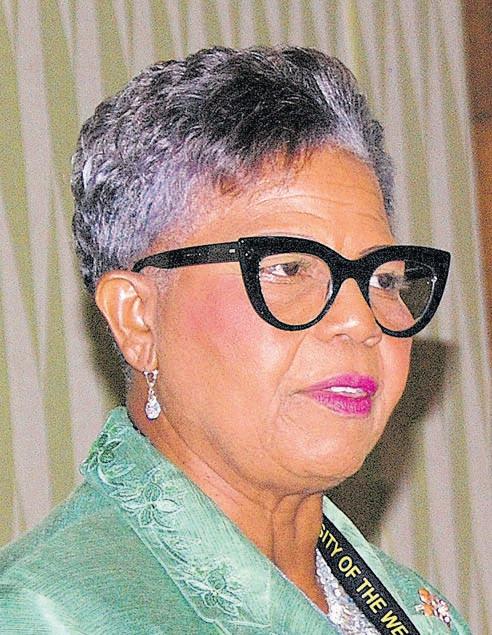
CYNTHIA FORDE, Parliamentary Secretary in the Ministry of Education, Youth and Culture. (FP)

we can create healthier, safer schools.






























































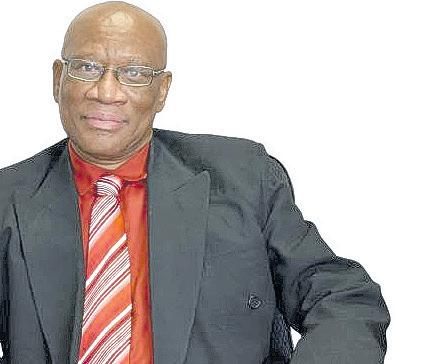
INCE ITS BIRTH 30 years ago, the Division of Youth Affairs remains a vital institution in Barbados, dedicated to empowering young people and providing them with the skills and support they need to succeed. As Director of Youth Affairs, Cleviston Hunte is at the helm of this important work, guiding the division’s efforts to build a stable and cohesive society through
The Division’s mandate is clear: to develop programmes that increase youth engagement, reduce unemployment, crime, and violence, and promote health and wellness. Through its various programmes, including the Barbados Youth Advance Corps, Youth Programme, and Youth Entrepreneurship Scheme, the division is working to make a positive impact on the lives of young people in Barbados.
According to Hunte, the Division’s approach is centred on personalising interventions for young people, matching programmes with needs, and providing opportunities for young people to develop their skills and interests. “We don’t want to put young people in situations that they don’t want to be in,” Hunte said. “We want to provide them with the support and guidance they need to succeed.”
He acknowledges that the landscape for young people in Barbados is changing rapidly, with rapid technological developments and shifting societal values. This, he contends presents both opportunities and challenges. “The young people of today are born into a technological age, and they have a different set of values and expectations,” Hunte noted. “We need to meet them where they are and provide services that meet their needs.”
The Division is also working to address the issue of inclusivity, ensuring that all young people have access to its programmes and services. For example, the Division has included students from the special needs institutions in its digital media and summer camp programmes, providing them with opportunities to develop their skills and participate in meaningful activities.
“We want to democratise our programmes and make sure that everyone has an equal opportunity to participate.”
As the Division looks to the future, the director believes that investment in youth development is crucial. Hunte stresses the importance of partnerships with stakeholders, including the private sector, to support the Division’s work. “We need to work together to provide opportunities for young people and to help them develop the skills they need to succeed.”
The Division is also focusing on research and development, using data to inform its programmes and services. “We want to be proactive and responsive to the needs of young people. We need to stay ahead of the curve and provide programmes that are relevant and effective.”
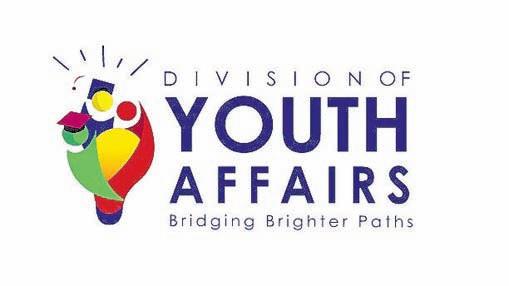
In a direct message to young people, Hunte encourages them to engage with the Division of Youth Affairs and take advantage of its programmes and services.
“We are here to support you and provide you with the opportunities you need to succeed. We want to help you develop your skills and interests, and provide you with the guidance and support you need to make informed decisions about your future.” (SD)
• Minister’s Message from Page 2D.
and international agencies – building bridges that support the evolving and dynamic mission of government’s dedicated youth agency. Together, these efforts reaffirm our dedication to empowering young Barbadians and redefining youth development for a new generation.
The Division of Youth Affairs has been more than a government agency – it has been a guiding framework for empowerment, inclusion, and innovation. It has nurtured generations of leaders, creators, and changemakers. And today, as we mark three decades of impact, we recommit to the vision that birthed this movement: that every young Barbadian deserves the opportunity to thrive, to lead, and to shape the future of our island.
We are far from done.
The journey of youth empowerment in Barbados continues, driven by the relentless dedication of our staff, whose commitment to tailoring programmes ensures that every young person has the opportunity to thrive. From mentorship and employability training to entrepreneurship and community engagement, our outreach is expanding across every district, meeting young people where they are and helping them rise to where they aspire to be. Whether in personal growth or career development, our goal remains the same: to shape confident, capable leaders who will carry Barbados boldly into the future.
The youth of Barbados are the architects of tomorrow. Through the Division of Youth Affairs in the Ministry of Youth, Sports and Community Empowerment, we will continue to give our Barbadian youth wings to fly in every arena where their talents deserve to shine. We believe in their brilliance, and we invest in their potential.
To all who have contributed to this legacy – past and present – I extend my deepest gratitude. Your efforts have laid the foundation for a future that promises to be even more dynamic, inclusive, and transformative. Thanks to all who joined in sharing the vision and for building bridges that connect policy to possibility. Thirty years may have passed, but the fire still burns. The journey continues empowering youth and building Barbados.
Happy 30th Anniversary Division of Youth Affairs



THE STORY OF the Division of Youth Affairs (DYA) is about vision, determination, and the people who made it happen. At the heart of this story is Hally Haynes, whose journey with the DYA started from the very beginning.
“It was an exciting moment to set up the Division of Youth Affairs with Richard Carter and Colin Clarke,” Haynes said. “It gave us a chance to create a programme that could support the growth and development of young people in the country.”
As the first Principal Youth Development Officer, Haynes and his team were responsible for being the “eyes, ears, and voice of young people across Barbados”. This vision led to the creation of 22 youth commissions. This initiative allowed the Division to collect data on young people’s aspirations and develop programmes that met their needs.
“I think that was one of the key things that sustained the Youth Development Programme,” he noted. The dedication of the first youth commissioners, many of whom earned a Diploma in Youth and Community Studies, ensured that qualified youth workers were present in every district in Barbados for the first time.
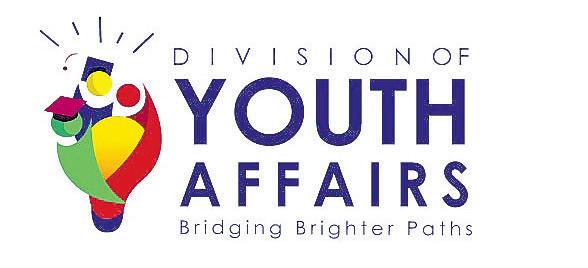
This critical work was built on a programme established before the Division of Youth Affairs was formally established in 1995 – The Barbados Youth Service – set up in 1991 to help young adults advance in society.
Haynes remembers the important role played by Ralph Walker, the first Director of the Barbados Youth Service, which became part of the DYA. “His legacy is that he created opportunities, especially for disadvantaged youth,” Haynes said. “The Pinelands Creative Workshop is a testament to his work with young people considered at-risk.” Walker’s vision, according to Haynes, laid a strong foundation. “He was able to set the platform so that people like me could develop. A lot of the expertise and guidance I received early in my transition came from Ralph.”
The growth continued. On August 15, 2019, the Barbados Youth Service changed its name to the Barbados Youth ADVANCE Corps (BYAC) – a transition that Haynes as Director played a key role in guiding. This change came directly from the Prime Minister’s desire to do more and reach more young people.
“We were only supporting 130 people per intake at that time. The Prime Minister felt we needed to do more. We needed to reach more young people. If you have 2 600 students leaving secondary school each year, we needed to do much more.”
The transition extended the one-year programme to two years, giving participants a richer experience.
“With this two-year programme, we can offer a residential training programme. It also allows us to work with young people on skill development during the first year,” Haynes explained. The second year, focusing on job placements, apprenticeships, and community service, proved especially valuable.
“I believe BYAC now offers a solid youth development programme that seeks to build the skills of young people aged 16 to 20. As the PM indicated, we should not have people at 30 years old looking for a job for the first time. We should have a programme that provides them with that opportunity. So what we do here at BYAC is to ensure young people between 16 and 20 have job experience. And it has worked well.”
Haynes believes the success of BYAC can be measured in many ways. The programme has impressive pass rates, between 85 and 95 per cent for CXCs, but he suggests its true impact is evident in the transformed lives of its trainees.
“I can share a story about a trainee who came to the Barbados Youth Service back then. Today, he is an attorney. He had no CXCs at the time. We helped him pass some CXCs. We supported him, and he joined the Barbados Police Service. He worked hard and is now an attorney. We have many more stories like that. One young man, now an engineer, came into BYAC and entered the Barbados Defence Force. He was sent overseas to Cuba for training and is now a lieutenant. Another young man, trained in mechanics at Simpson Motors, went overseas and got training. Those are the kinds of opportunities available to young people. “These experiences remind me why I come to work—to make a difference in the lives of the people I serve.”
For Haynes, his satisfaction comes from watching the young men and women he has supported succeed. “That brings joy to my heart, knowing I played a part in their growth and development.”
Looking forward, he has an ambitious vision: “I believe every young person in Barbados should participate in the Barbados Youth Advanced Corps. I think national service is essential.”
He feels it’s time for a serious national discussion about mandatory youth service to strengthen the skills of young people, using Israel’s model as an example. (SD)



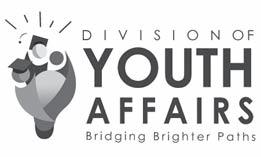


From The Board of Management, Administration Staff and the Students of the to the Management and Staff at




IN THE STORY of the Division of Youth Affairs (DYA), Ralph Walker, a veteran public officer and youth development expert, lives on long after his passing in June 2024.
Never one to seek the spotlight, his legacy is woven into the DYA’s programmes and the lives of countless young people he guided. His journey began long before the Division was formalised in 1995. He was the first Director of the Barbados Youth Service, where he focused on the social and personal development of young people.
His hands-on approach and deep understanding of the challenges facing at-risk youth made him a respected figure. He was known for his calm demeanour and his ability to connect with young people on a personal level, serving as a mentor and guide. In his various roles, he helped shape the curriculum, organise activities, and ensure that the
programms were more than just a place for young people to be. They were a place for them to grow.
When the Barbados Youth Service became part of the DYA in 1995, Walker’s expertise was essential. He brought with him an institutional memory and a practical grasp of how to make programmes work effectively. He championed initiatives that provided practical skills and vocational training.
Throughout his career, Walker was a constant presence. His quiet dedication ensured that the mission of youth empowerment remained central to the Division’s work. His legacy lies in the impact of his mentorship, his integrity, and his unwavering belief in the potential of every young Barbadian. His work helped create the stability that allowed the Barbados Youth Service to grow and thrive, becoming the robust organisation it is today. (SD)

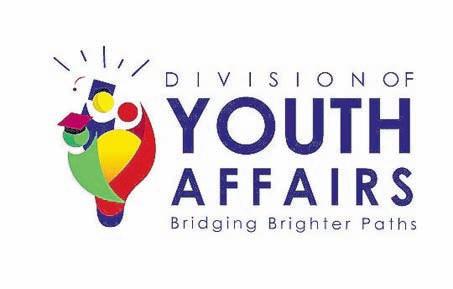



KAREN DRAKES IS a lady of firsts at the Division of Youth Affairs (DYA). She is the first ever stenographer-typist and the first disabled employee to have entered the doors of the government agency in April 1995.
Karen, who lost her legs at the age of 15, recalls she was excited, but equally anxious as she took up the opportunity.
“Being a person with a disability in a workplace, you tend to tell yourself, you can be frowned upon, looked down on, and mistreated,” she recalled. Drakes, who was new to the world of work, expected to be assigned the most difficult and demanding tasks. However, what she experienced was quite the opposite.
“The staff made me feel at home. They welcomed me. I call them my family.”
Her early days tested her resilience. As the only stenographer, she worked with a team of just over 30 people. Her work involved a wide range of administrative tasks including preparing documents, memos, and handling calls. With a chuckle, she remembers the limitations of early technology, like “big back computers” and “ugly printers”. Yet, there was no task assigned to Karen that she did not complete.
“I tell people, once you have a job that you love, you go out on a limb.” Her dedication has pushed her to work through sick days and vacations.
For Drakes, the division’s culture of care and compassion sets it apart. “A couple of times at work, my prosthesis was damaged, and twice or so I had fallen,” she recalled. In those vulnerable moments, her colleagues came to her aid immediately, helped her up, and waited with her until her family arrived to take her home.
This level of care, she said, is not something everyone experiences. “I hear a lot of reports from the disabled community of how one may fall sick at work and nobody looks at you. I can’t say that about my Youth Affairs family. They are always there at my beck and call.”
After three decades, her work is now much easier, thanks to technology and more staff at the DYA But her pride in the DYA’s mission remains as strong as ever. “My job means a lot because people with disabilities are not given a chance,” she explained, and adding that her 30 years of service represent more than a personal milestone; they serve as an inspiration to her disabled community, her family and her colleagues.
Drakes says the DYA’s work is still relevant and critical for today. Having witnessed the transformation of countless young people who came through the division’s programmes, she said. “They are different people. “They change their whole outlook on life. So yes, I am proud of the work of the division.”
As the DYA celebrates its 30th anniversary, her hope for the future is for the institution to continue growing even closer and to continue to introduce new programmes that include persons with disabilities. (SD)



YES WAS BUILT on the belief that every young person has potential. Pictured are examples of young entrepreneurs who have benefited significantly from YES. At right, Minister of Economic Affairs and Investment
Kay McConney was the first Manager of the Youth Entrepreneurship Scheme. (GPs)

“THIS MILESTONE IS not just YES’ anniversary - it is a celebration of every young entrepreneur who dared to dream, create, innovate and make it happen!” said Selma Green, a former manager of the Youth Entrepreneurship Scheme (YES).Thirty years on, no one needs to convince Greene that the bold move to set up the entity geared towards developing an entrepreneurial spirit among youth was a smart move.
“Building YES meant laying a foundation of trust with young people, changing mindsets, convincing stakeholders of its value, and creating structures that could nurture ideas to enterprise,” she explained. “It was fuelled by limited resources and unlimited determination.”
She described the early days of YES as “both exciting and challenging, noting that the original team had to innovate constantly to ensure they fulfilled their mandate.
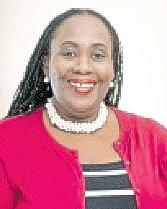
“YES was built on the belief that every young person has potential,” Green explained. The goal was to take that potential and, with the right mentorship, training, and access to resources, turn it into a driving force for national development.
This hard work has yielded big results. Since opening its doors in 1995, YES has been a beacon of opportunity, providing more than 3 000 talented young Barbadians with the tools, training, and confidence to transform their ideas into viable and sustainable businesses.
This success was built on the foundation of the programme’s early training modules, which were designed to be both comprehensive and transformative. Greene said they went beyond the basics of business planning, financial management, and marketing to also focus on personal development skills like discipline, resilience, and leadership.
“We wanted participants to not only learn how to run a business but also how to think like and be entrepreneurs.”
Green believes that teaching young people that setbacks are an inevitable part of the entrepreneurial journey is critical to their success. “Entrepreneurship, like life, is less about avoiding failure and more about how you respond to it,” she advised.
The most significant legacy of YES, according to the former manager, is the profound shift in mindset it has created across the island. “Beyond businesses created, it is the confidence instilled, the skills passed down, the networks created and the positive generational impact that stand as YES’ true legacy.”
As the Scheme marks its achievements, Green has a powerful message for the next generation of young people considering entrepreneurship. “Believe in yourself, start where you are, and do not be afraid of failure.”
“With passion, resilience, and a willingness to learn, build something that not only sustains you but also contributes meaningfully to your community and your country. And as you grow and develop, remember to always give back!” (SD)
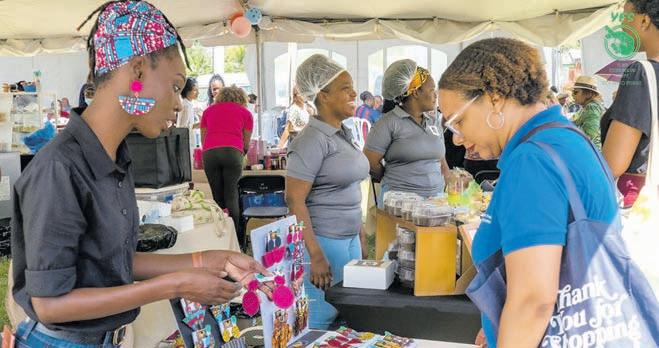
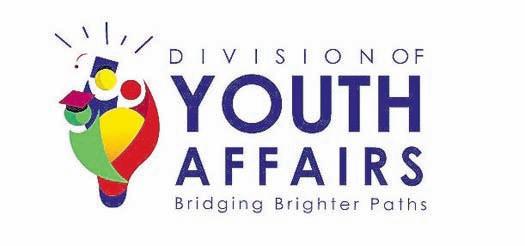
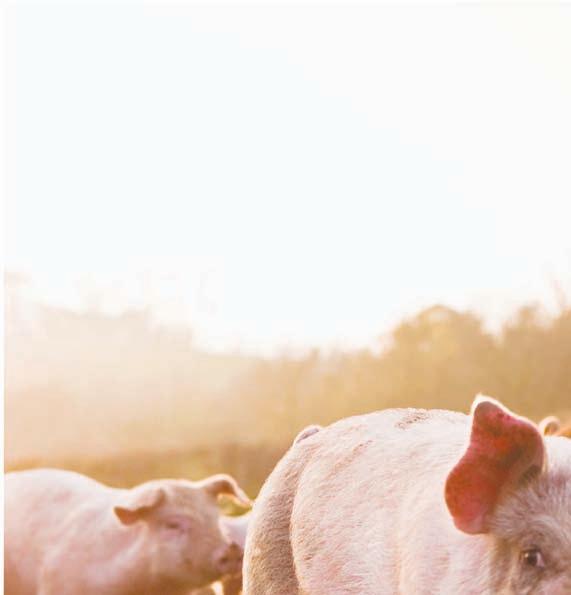
Congratulations & Best Wishes to
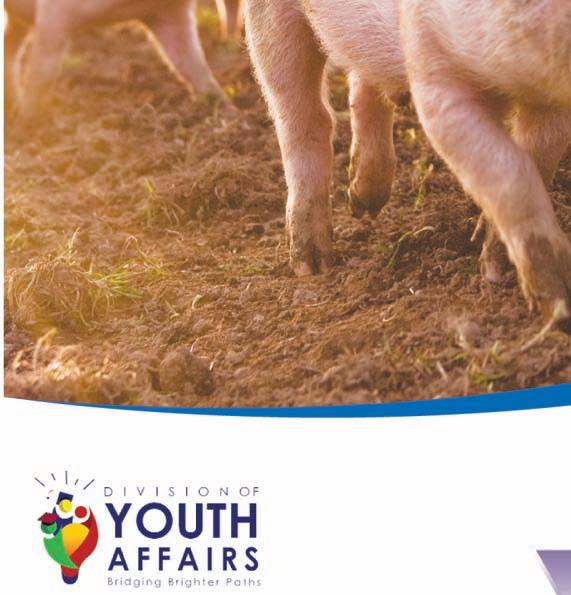



Thirty years ago, in a small office on Jemmotts Lane, the Youth Enterprise Scheme (YES) opened its doors. It was a modest start for a programme that would shape a generation of young Barbadian business owners.
For Suzanne Wilkinson, the first clerk typist, it was the beginning of a lifelong passion and a journey that has come full circle.
“It was just three of us running the programme,” Wilkinson recalled, “It was like a family; it was interesting.”
Wilkinson, known as the “go-to” person for anything needed, was one of the founding members of YES along with Manager Kay McConney and Youth Enterprise Officer Selma Husbands. The team worked in a small space with the Youth Development Programme and the Barbados Youth Service. Resources were limited, and Wilkinson remembers rushing from one building to another for meetings.
YES was established after a national youth survey mandated by then minister of education, youth affairs and culture Mia Mottley. The survey revealed that young people had many business ideas but lacked formal training, business skills and, in some cases, basic literacy to get started.
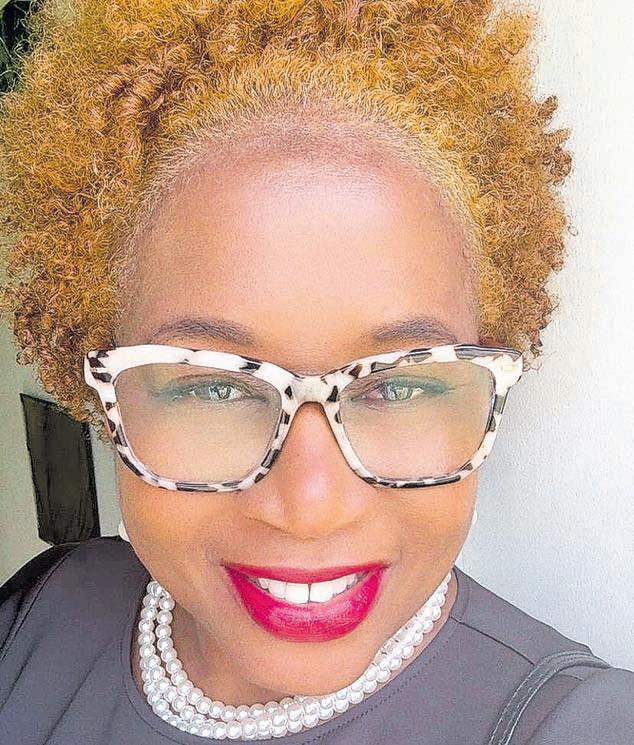
“We had that motto: From Idea to Enterprise,” Wilkinson said. “So, we helped them with the initial steps like business planning and technical support. Sometimes it was as simple as that, but it was crucial for marketing their businesses.”
Wilkinson witnessed hundreds of young lives change through the programme. She remembers clients growing from small kitchen operations to renting their first business space. Many returned not just to express thanks but also to share their success stories.
“They would come back and say, ‘Man, this really helped’,” she noted. “We saw them grow and open multiple locations. Those stories feel good.”
The programme, she adds, was not only about money, it often provided counselling and essential skills to help young people manage their finances and run businesses. “They would always say they never knew how to manage their money before, but thanks to us, they learnt. They were always grateful.”
Wilkinson, who was always a ready helper, earned the nicknames of Wilkie and the go-to. No matter what you need, her colleagues would say, “Go to Wilkie. She is the go-to.”
A trained social worker, Wilkinson now works with youth in Massachusetts, but her heart remains with the DYA. She takes great pride in the progress she has observed from afar, especially YES’ expansion into schools with initiatives like Camp Enterprise.
“It’s great to see it branching into different segments of YES, starting from young people in schools and growing from there,” she expressed. “It makes me feel good that I was part of it.”
As the Division of Youth Affairs marks its 30th anniversary, Wilkinson reflected on the journey and what lies ahead.
“If I had stayed, I would be celebrating my 30th year this year too,” she said. Her simple wish is for the department to keep up the good work and continue being a lively and changing force for improvement.
“It’s nice that the staff are adjusting to change,” she observed, “It’s not like the old days when people would cling to their habits. There’s always something happening within the division, which is encouraging.
“I miss it here,” she admitted. “I miss it.”

‘Go-to
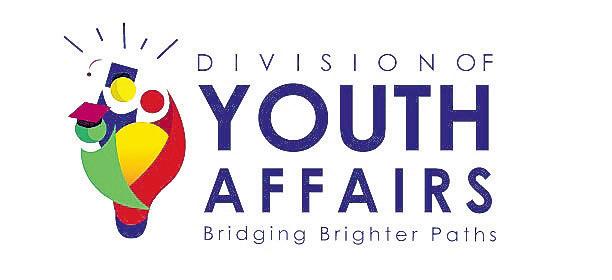








































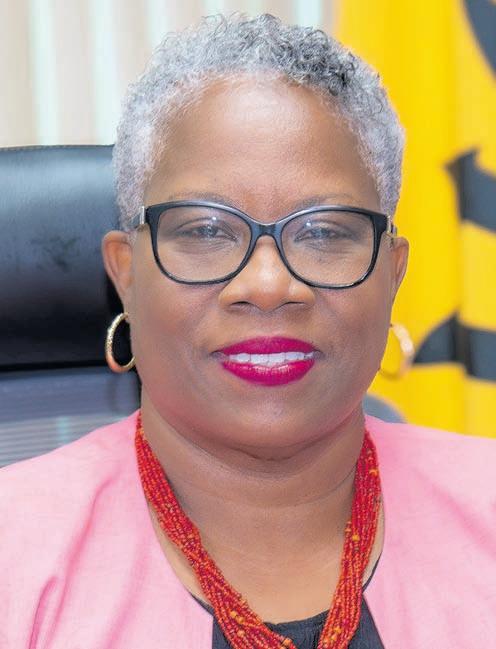
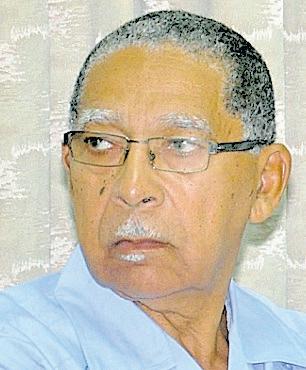
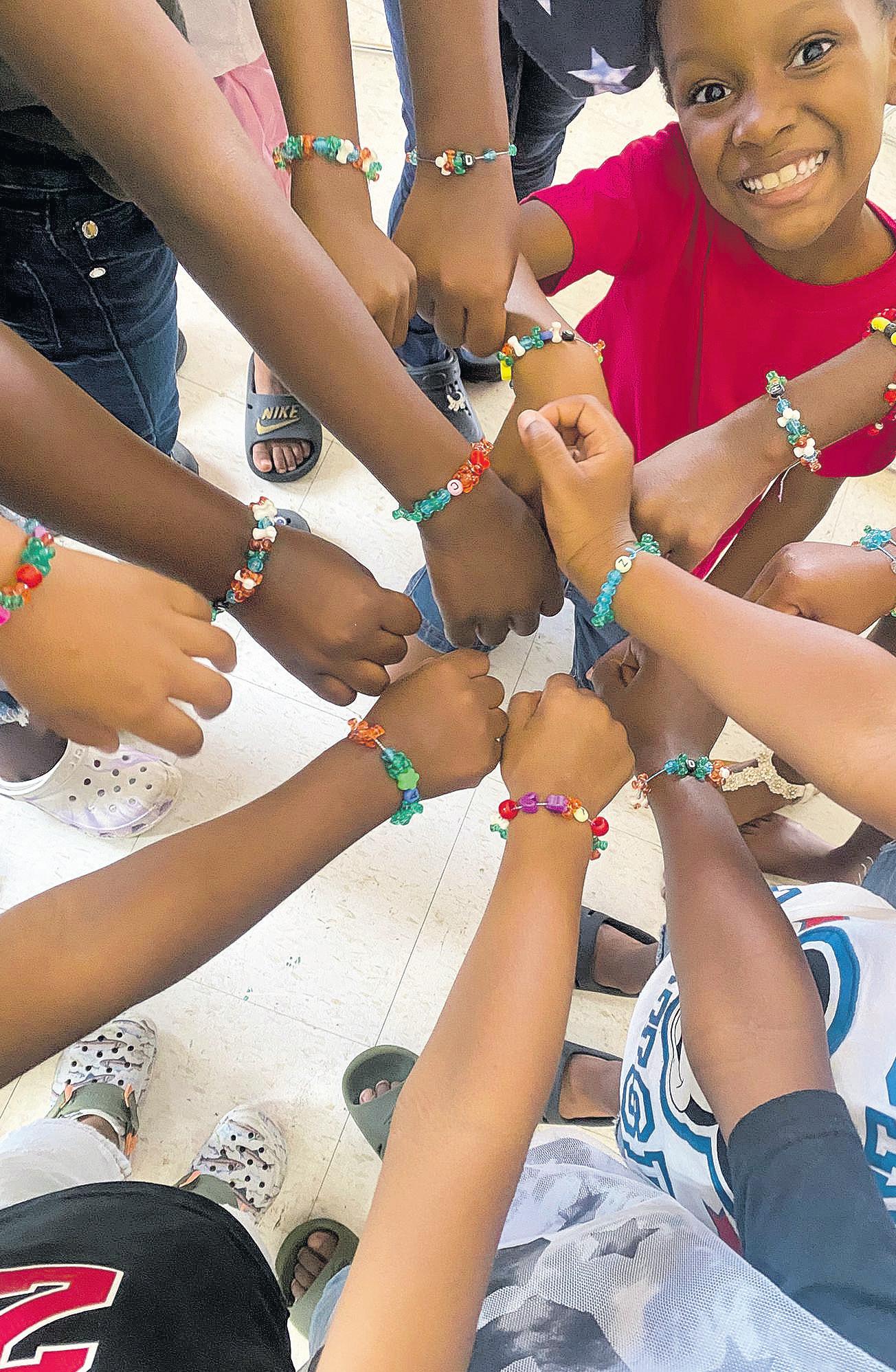
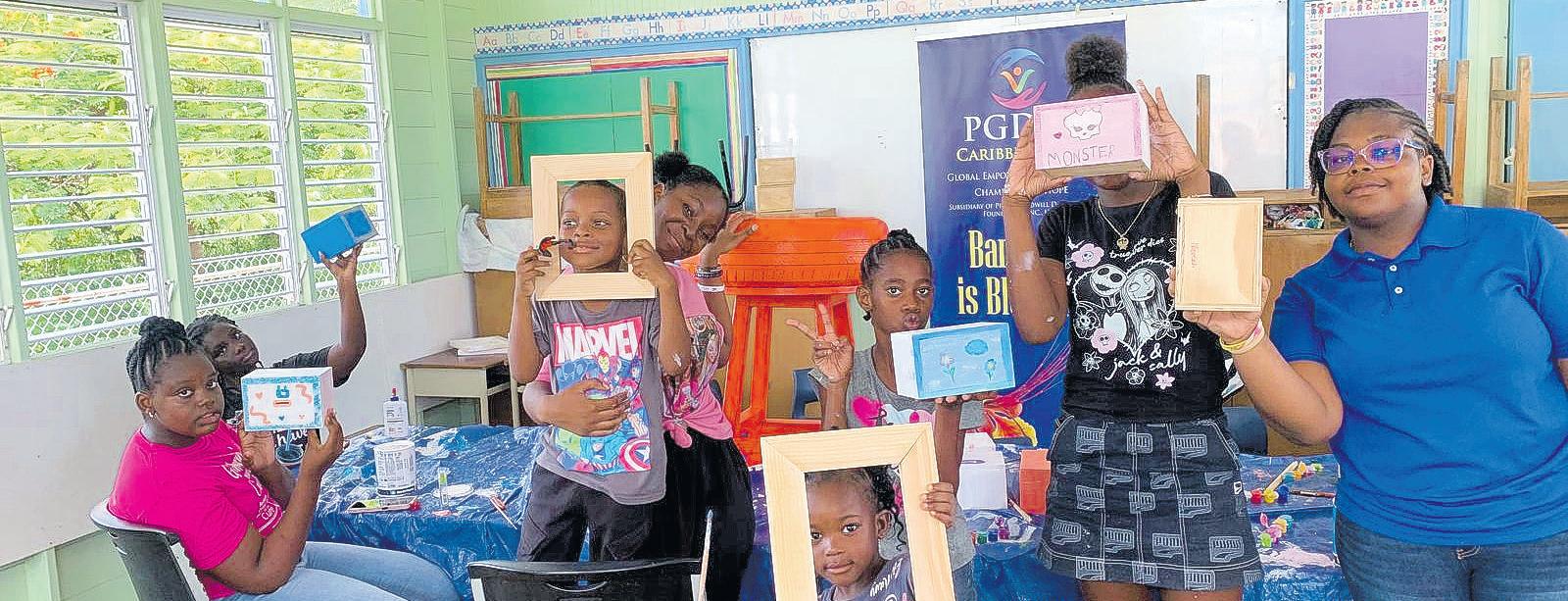
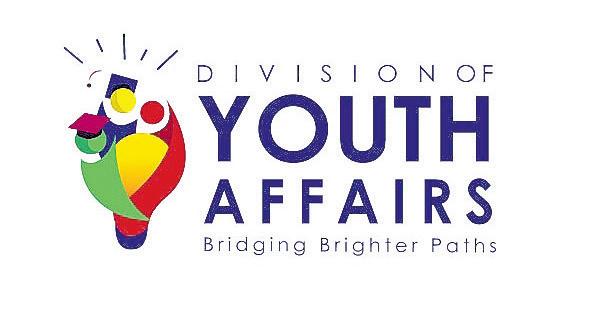
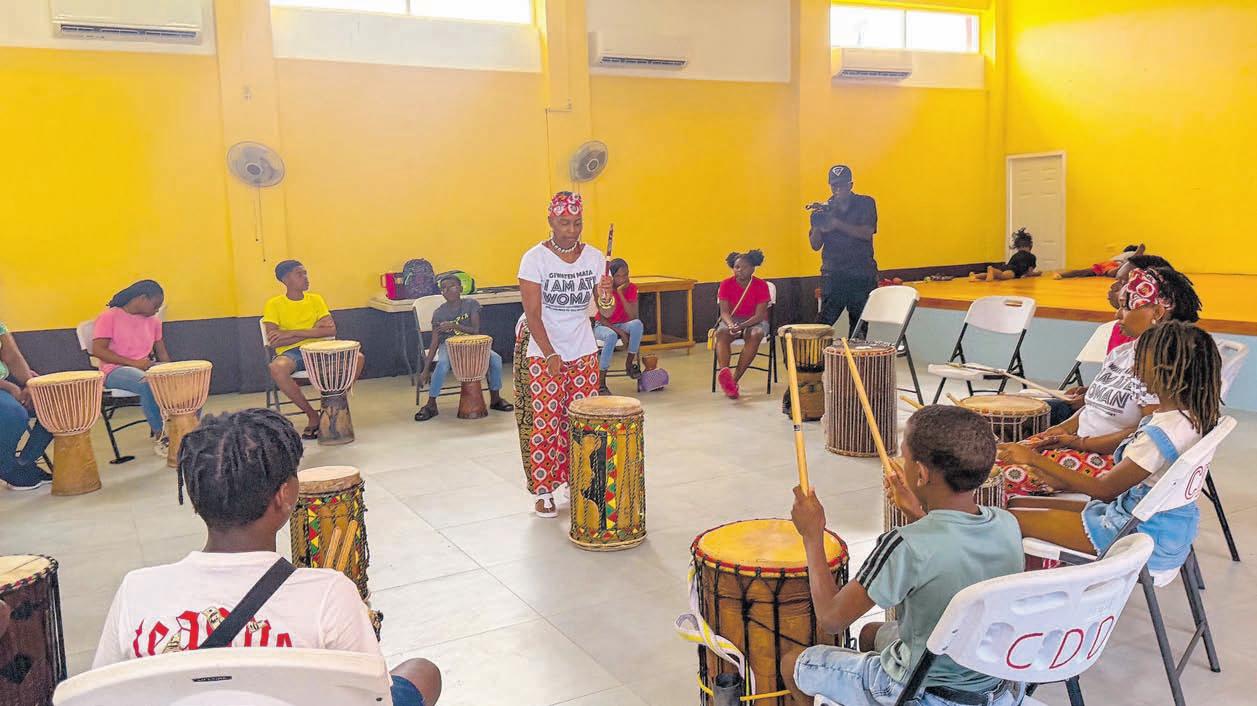
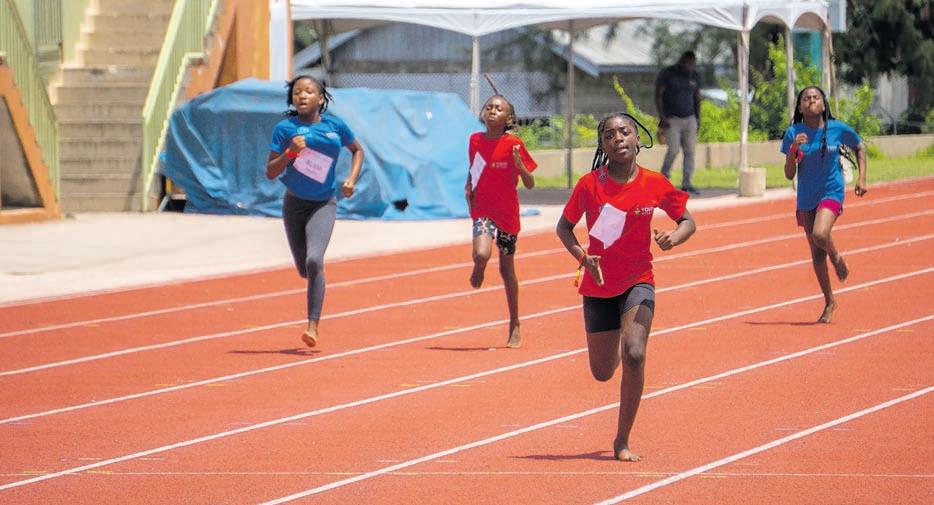
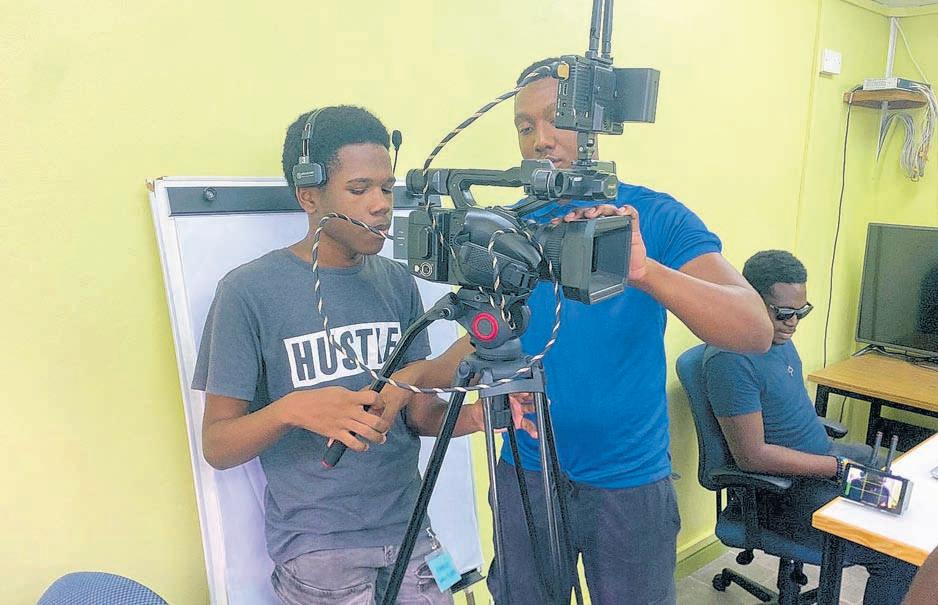


CAMPERS LEARNING the art of drumming. (GP)
WHILE MANY KNOW the Division of Youth Affairs for its main programmes such as the Barbados YouthADVANCE Corps and the Youth Entrepreneurship Scheme, the National Summer Camp Programme is a crucial part of youth development in Barbados. This programme is essential to the DYA’s mission. It offers a safe, structured, and enriching environment for hundreds of young people during the long summer break.
The summer camps aim to be more than just a place for fun. They reflect the DYA’s belief that every young person, no matter their background, deserves the chance to grow and learn. By providing specialised camps, the programme addresses a wide range of interests and talents.
The Digital Media Camp, for example, teaches participants the basics of digital storytelling, videography, and graphic design. This equips them with valuable skills for the 21st century. Similarly, Camp
Employing Minds focuses on personal development and job skills, preparing young people for the workforce.
These programmes show the spirit of collaboration that has defined the DYA since it started. They bring together a diverse group of mentors, including experienced educators, artists, and skilled professionals, who offer their time and expertise.
This teamwork ensures that the camps provide a well-rounded experience.
Participants learn new skills and important life lessons in teamwork, leadership, and community involvement.
The impact of the National Summer Camp Programme is clear in the lives of those who take part. It offers an alternative to unproductive time, giving a creative outlet for energy. In the structured camp setting, many young people discover new passions, build self-confidence, and make lasting friendships. (SD)

The Honourable Chad Blackman, Minister of Educational Transformation
The Honorable Chad Blackman Minister of Educational Transformation
Message from the Honourable Chad Blackman, Minister of Educational Transformation, to mark the 30th anniversary of the Division of Youth Affairs
The Ministry of Educational Transformation is proud to congratulate the Division of Youth Affairs on thirty years of sterling service in the development of our nation’s youth.
In concert with the Division’s philosophy, our Ministry is transforming our communities by empowering every child in Barbados through the delivery of an education system that is Fair, Inclusive, Relevant and Modern.
This transformative approach has engendered a greater emphasis on quality education, ensuring that all educators receive the highest level of training with the ultimate result of improving student outcomes.
Fully cognizant of the importance of literacy and its power in creating a world of possibilities for our youth, the Ministry of Educational Transformation has trained over three hundred teachers in this area equipping them with the knowledge and skills to assist our students. We have also sensitized our parents and guardians as we strive to realize our shared mission in building supportive and cohesive communities.
Our schools, which often serve as hubs for youth activities after they have closed for the day, are earmarked for comprehensive infrastructural facelifts; enhancements which will foster closer relationships with the youth in our communities as they are invited to partner with us in beautifying and maintaining their environs.
Understanding that our youth are future nation builders whose resilience and strength of character will be needed to take our country forward, we are intentional in Citizenship Education and service to our country through the resurgence of organizations like the Boy Scouts and the Girl Guides Association.
We will continue to work with the Division of Youth Affairs in hosting the National Summer Camps in ensuring that our young minds are positively and actively engaged in wholesome activities and in facilitating student voice through our Youth Parliament.
We share your commitment to youth advancement and pledge our continuous support in building stronger communities and empowering our youth.
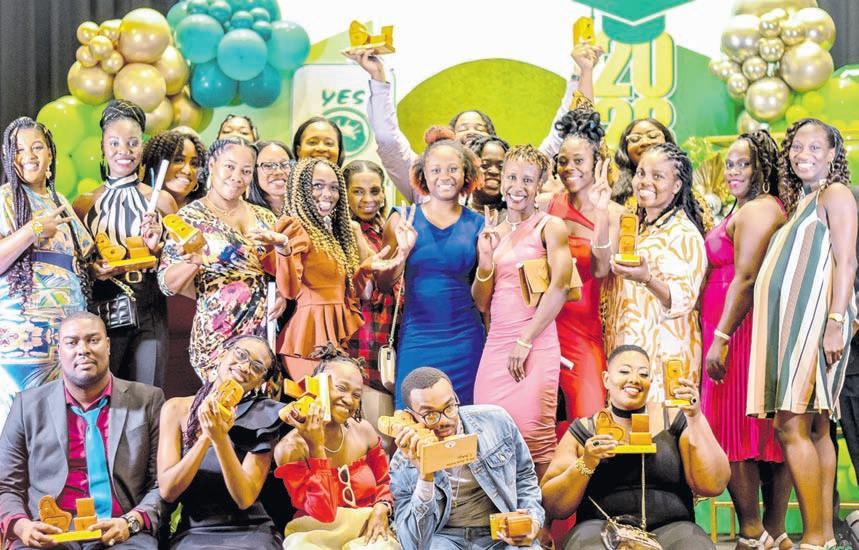
THE YOUTH ENTREPRENEURSHIP SCHEME graduating class. At right, Tyrique Wilson took a risk and started Carrington’s Rum Cream, which is now a successful business. (GPs)
Over the last three decades, the Youth Entrepreneurship Scheme (YES) has been sowing the seeds of entrepreneurship, and its harvest is a new generation of innovators.
Gone are the days when gaining certificates and securing a stable job were the ultimate goals. Today’s youth are creating their own paths and delivering fresh ventures that are changing the game.
Ryan Moseley, the acting Manager of YES, said this isn’t a feeling, but a reality he sees daily.
“We’ve realised that a lot of young persons now are not buying into the whole mantra of being employed for somebody for 30 years. “They prefer to use their own skills, even if they start small and grow the business and diversify and pivot away, do something else, try something different.”
This trending mindset is the biggest change Moseley has witnessed in his 23 years with YES. He recalls a time when entrepreneurship was viewed as a ‘fallback’ for those who didn’t do well academically. Today, he sees a different group entering the programme.
“We have many university graduates, even those before they reach university, who have decided: ‘I want to work for myself.”
According to the YES Manager, this generation understands they can build a business from the comfort of their home.

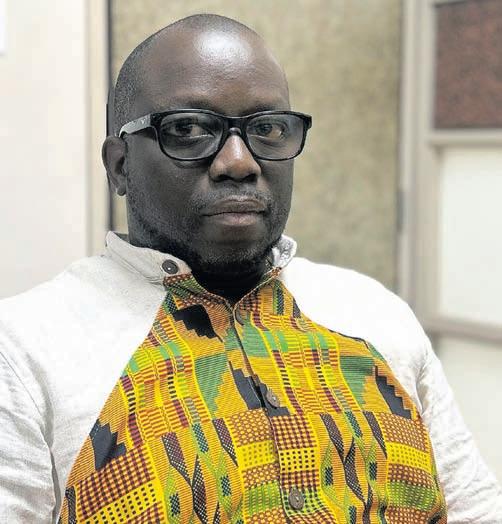
“A lot of persons know you can sit at your computer at home and work across the world,” he said, adding that they are embracing “entrepreneurship from that level and are deciding and making conscious efforts to work for themselves”.
But the journey is no easy feat. YES, since its inception in August 1995, has been offering a lifeline to budding entrepreneurs, through a suite of programmes that range from business counselling and mentorship, entrepreneurial development training, direct technical assistance, financial counselling and referral, accounting and marketing services and entrepreneurship education, through the YES Junior Programme/Summer Enterprise Programme.
In recent times, the organisation has also upgraded its offerings. Post-COVID, the programme focused on a more holistic approach, empowering clients to better handle personal challenges that often impact their business.
“A lot of clients come to YES with a lot of personal and psychological issues that can negatively impact their trust to develop their business,” Moseley explained. He added that addressing these foundational issues first empowers young people not just to run a business but to build resilience.
Moseley also highlighted that the new wave of entrepreneurship is more than just a different mindset, saying that a new level of innovation has emerged.
“It is no longer a copycat thing like the usual, the proverbial pigtails. Everybody started selling pigtails. Everybody started selling Remy hair. Persons are actually doing their research, looking for areas that are not being provided for, even if it’s technologically based.
“So you see persons doing a lot of things like natural body products. They are now doing their research. How does aloe work, what can aloe heal? What can turmeric heal? And they are blending the chemicals, using skills in chemistry with the natural herbs that are grown and they’re developing products. Persons are thinking about using the Sargassum seaweed to do fertilisers,” he says.
A favourite success story is Carrington’s Rum Cream, a venture started by Tyrique Wilson, a young man who holds a law degree but took a risk and developed the product based on his grandfather’s recipe.
“He has recognised the importance of entrepreneurship,” Moseley said, expressing pride in YES’ success rate.
While the global average for conversion from training to entrepreneurship is about 12 per cent, YES boasts a conversion rate of between “20 and 25”.
Looking ahead, the YES Manager said the Scheme is determined to spread the message of entrepreneurship far and wide. The focus is on strengthening their outreach programmes.
“So within the next couple of months, we’re going to be rolling out some programmes with some strategic partners to specifically target primary schools, secondary schools, communities, specialised communities that want entrepreneurial programmes tailor-made for their people.”
Moseley assured that YES will continue to pave the way for successful startups and an entrepreneurial spirit in Barbados he believes will take the island to new heights. (SD)
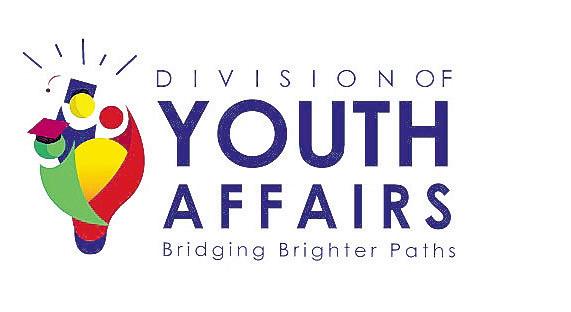
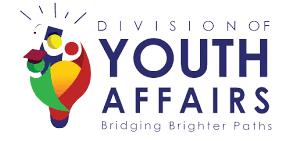

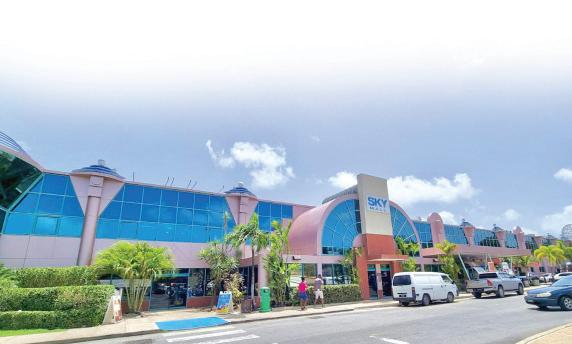

SHERRY-ANN BATTERSHIELD was merely trading ideas with her cousin about how to make some extra cash by selling soaps she had seen online. It never crossed her mind that this chat would lead to a thriving skincare brand, Naara Beauty.
“The initial plan was just to make soaps. I had no skill set when it came to making soaps,” she admitted. She took a class to get started and as she learned the process, she discovered a real passion for creating skincare products. What began as a soap-making class grew into a complete product line and she quit her job to nurture her venture on her own.
With a laugh, she remembers using Microsoft Word’s Word Art to design labels and scotch tape to stick them on her products. “My early packaging was cellophane wrap and scotch tape, I thought this thing was so fantastic, I’m using scotch tape, girl, and I’m taping this thing, girl, and I felt this thing was the bomb.”
Coincidentally, her “unique” packaging caught the attention of the Youth Entrepreneurship Scheme (YES), and she received the critical help she needed. Battershield remembers she was among entrepreneurs showcasing their products at a BMEX exhibition when she was approached by Youth Enterprise Officer Ryan Moseley.
While he praised her products, his feedback about the packaging changed everything.
“The term he used, and I will never forget,” she said, “was a little rustic.” Battershield was not hurt, but was motivated to improve her presentation. She says YES helped her to take her business to another level.
“It was YES who opened my eyes to the possibility of what Naara can be, so if you look at our packaging now, it is a far cry, very sleek, very simple, because presentation is important.
“So YES has helped me tremendously with providing opportunities, also bringing the product from that rustic, handmade looking thing to something that is now available at the Grantley Adams International Airport.”
In addition to this support, Battershield said she also acquired critical skills through a wide range of training programmes that helped her to better handle her finances, including budgeting, tracking revenue and expenditure.

“So they did a holistic approach to business that helped me too. The technical support was phenomenal, ensuring that when you go out there, you present your best that it may catch the eye of the next investor or the next person that can take it to the next level; that was, for me, very instrumental.”
Battershield is now A YES facilitator, helping to guide young entrepreneurs to success. She advises those wishing to get into business to knock on YES’ doors.
“Sometimes you have a good idea, you have a love for something, but managing it and understanding the dynamics of what it means to run a business – that maybe lacking. That’s where YES comes in; they can guide you to success.” (SD)
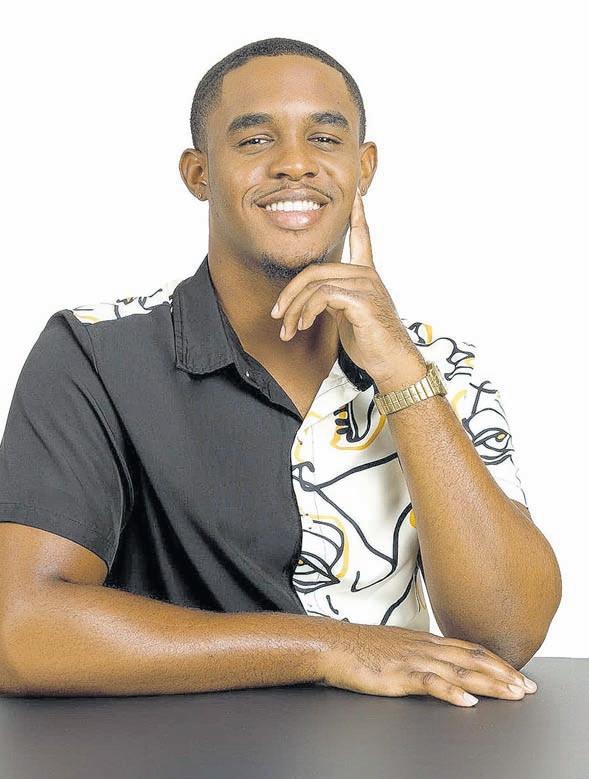
JEREMIAH CADOGAN’S DECISION to start FuriousKarting at just 17 years old started with a simple desire to fill a need in his Arch Hall, St Thomas community. had nowhere to play,” he said.
In 2019, he decided to approach the Sandy Lane Charitable Trust with a big idea, starting with nothing more than a trolley from Cost U Less that provided fun rides for youngsters. That project, however, ended but led him to dream bigger and lay plans to create his own karting business.
Cadogan was unsure how to move forward, so he turned to the Youth Entrepreneurship Scheme (YES) for help.
“It kind of took away the fear that I had in starting the business and running the business. Some people may understand that business is very scary. It was for me, but having those people around me speaking positive words and encouraging me really put me on the right path.”
YES guided Cadogan through the entire planning process that led to the birth of FuriousKarting about 15 months ago.

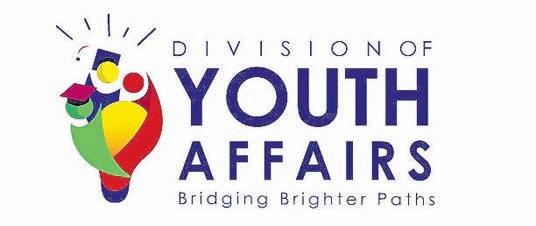
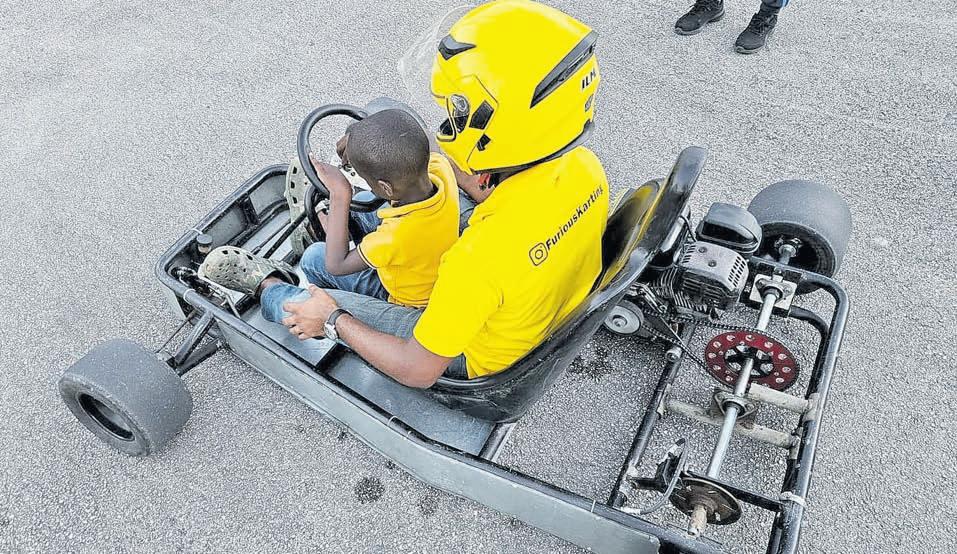
with children’s homes, schools, and summer camps. He says being able to give back is the most rewarding part of his success.
“My colleagues, like persons who did the programme with me, my mentors within YES, they would have guided me in terms of how to price the karting and how to go about doing the financial stuff that people normally run away from.”
Today, Jeremiah is proud to be a YES success story, but he hasn’t forgotten his humble beginnings. FuriousKarting gives back, working
“It really brings joy to us and that wouldn’t really be possible without the Youth Entrepreneurship Scheme. I don’t want to say it brings a tear, but it really is very joyful being able to say that the Youth Entrepreneurship Scheme was a big help in that way.”
The now 23-year-old highly recommends the YES programme to anyone with a business idea, regardless of age or the nature of their venture, noting that the support continues even after the programme ends.
“They still provide help for me to this day,” he said. “I can call and ask for a bit of assistance... they will point me in the right direction. They can do the same for you.” (SD)
THE Youth Development Programme (YDP) started in April 1995 with a clear goal: to empower Barbadian youth by supporting their social, economic, and cultural growth. For Andrea Titus, who has been with the programme from the beginning, the YDP is more than just a government initiative; it’s the engine of the Division of Youth Affairs.
“I was here from the start in 1995,” Titus, the first female Principal Youth Development Officer said with pride. She was part of a team of youth officers, who, under then Minister of Education, Youth and Culture Mia Mottley, focused on creating a new government section dedicated to young people. “It was special because you had a whole group of youth officers to work with, and you wanted to see how you could help young people reach their fullest potential.”
In those early days, the team worked from a small office on Jemmotts Lane. The work was challenging but the mission was clear. Titus and her colleagues went into communities and thoroughly mapped every part of their districts to carry out a national survey. This needs assessment would shape the future of the YDP. Their hands-on, grassroots approach laid the groundwork for every programme and project that followed.
Over the past 30 years, the YDP has been an active force, always changing to meet the needs of youth. While it began with programmes in culture and sports training, it has expanded to address modern issues like youth unemployment and mental health.
These include the Barbados Youth Parliament, the Youth Transition Programme from primary to secondary school, youth support hotline, health and lifestyle projects, psycho-social interventions for youth, and mentorship programmes.
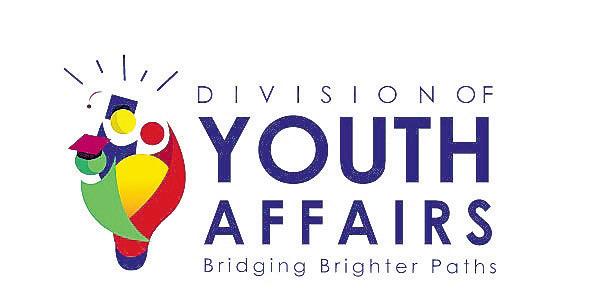
Titus highlighted other initiatives like the Garden Project. This project, in collaboration with the UNDP and the Ministry of Agriculture, helped young entrepreneurs learn to grow their crops. YDP is making strategic shifts in offering new accredited programmes to youth across Barbados.
However, for Titus, the programme’s real impact shows in individual success stories. She recalled helping a former client find a Christmas job years ago.
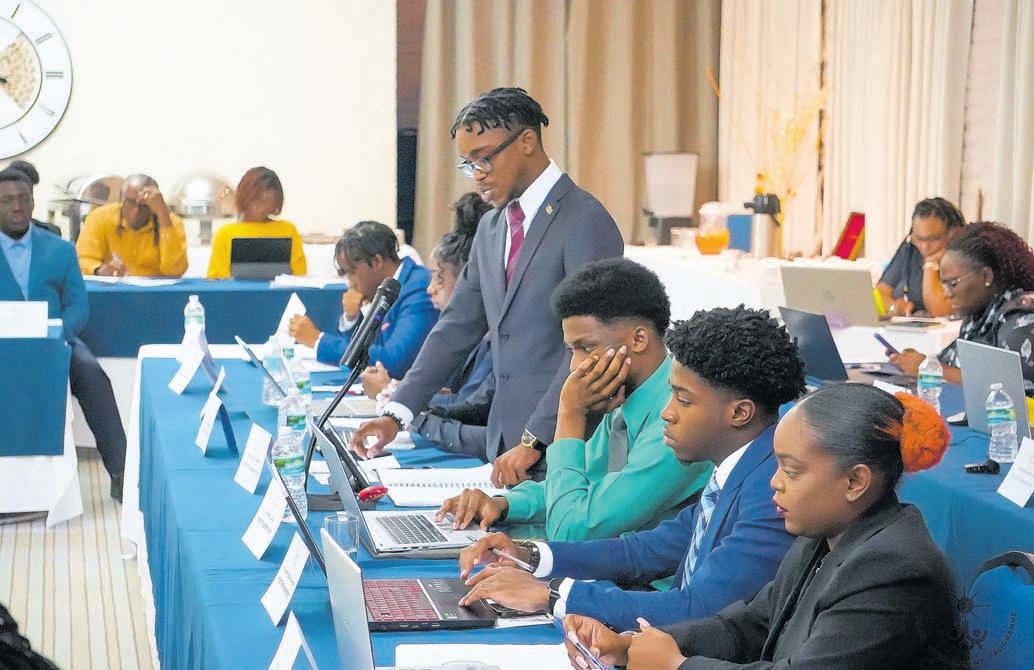
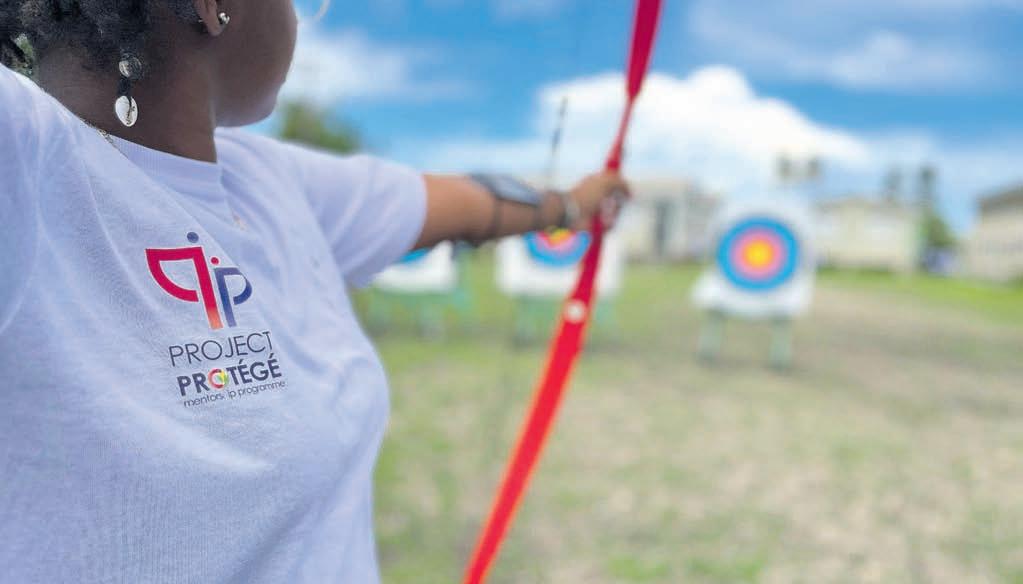

Today, that young person is a manager at hardware store, Do It Best. “I am so proud of my young people,” she said. “Many of them probably excel in terms of earning more money than I do now, but I’m happy because they have reached their potential.”
Titus said as the DYA marks its 30th anniversary, its mission is still critical. She believes the YDP is well positioned to keep providing support and guidance to the nation’s youth. New initiatives like the Project Protégé Mentorship Programme, a 24-hour hotline for mental health, and partnership with UNICEF for an anti-violence project, are all evidence of this commitment.
She stands firm behind the YDP’s philosophy that no one should be labelled ‘at-risk’ because of their situation. “My interpretation,” she said, “is that anyone who can’t reach their fullest potential, that’s what we’re here to do – help you reach that potential.” (SD)

IT’S NOT EVERY DAY that a simple end-of-year concert turns into a powerful movement, but for Shaisah Brathwaite, it did. What started as a community event at her church, Kingdom Life Assembly, has grown into the Konnected Project, an initiative that has brought hope and healing to many young people across Barbados with the full support of the Division of Youth Affairs (DYA).
The idea for Konnected came from a need to unite people after the isolation caused by the COVID-19 pandemic. The first Konnected concert served as a test to reconnect the community with the church and with each other. Brathwaite remembers being surprised by the turnout, as people of all ages filled the small church. It was such a success that Brathwaite reached out to the DYA at the suggestion of a fellow church member, an employee of the Division.
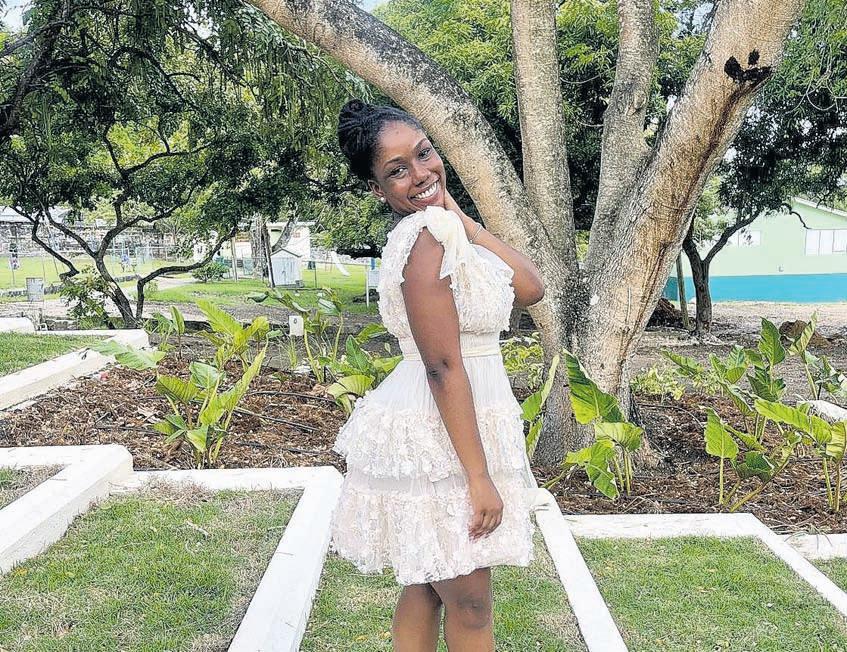
The DYA responded quickly and positively. “They were very open,” Brathwaite said. “They said, ‘Yes, you can come up, of course, of course’.” That early support sparked a partnership that has shaped the project’s growth.
The second year of Konnected was especially meaningful for Brathwaite, as it focused on mental health after she lost a friend to suicide. She teamed up with the National Council of Substance Abuse (NCSA) for the event which involved local artistes, singers, and dancers. Brathwaite’s passion for youth was evident.
“Our aim is for the youth,” she said. “Everything you see with Konnected is about young people.” The event offered young artistes a platform and created a safe space for their peers to relax.
This year, Brathwaite relaunched the project under her own name as a registered business. She admits the change felt “a little scary and nerve wracking” since the community had known the project through the church. However, she had a strong team behind her and, most importantly, the continued support of the DYA


The DYA’s help has been crucial for The Konnected Project. Brathwaite noted that their assistance has been vital, especially when it comes to funding artistes and musicians, who are central to the concerts. When a last-minute sponsor backed out, leaving her anxious, she contacted the DYA. The DYA stepped in, allowing the concert to proceed. “Honestly,” she says, “I would not know how we would have done it without them. They’re really the reason why we are what we are now.”
Brathwaite considers the DYA’s work vital for young people and communities. She believes their readiness to support any project involving youth is what makes them unique. “Their heart is for the youth,” she said. “Once they see your vision and understand your goal, whatever they do for young people, they say yes.” She encourages young people with ideas, big or small, to seek their support because with the DYA, a “yes” is always a possibility. (SD)

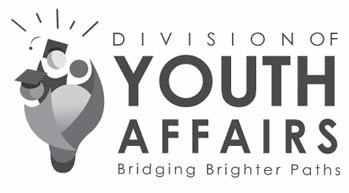






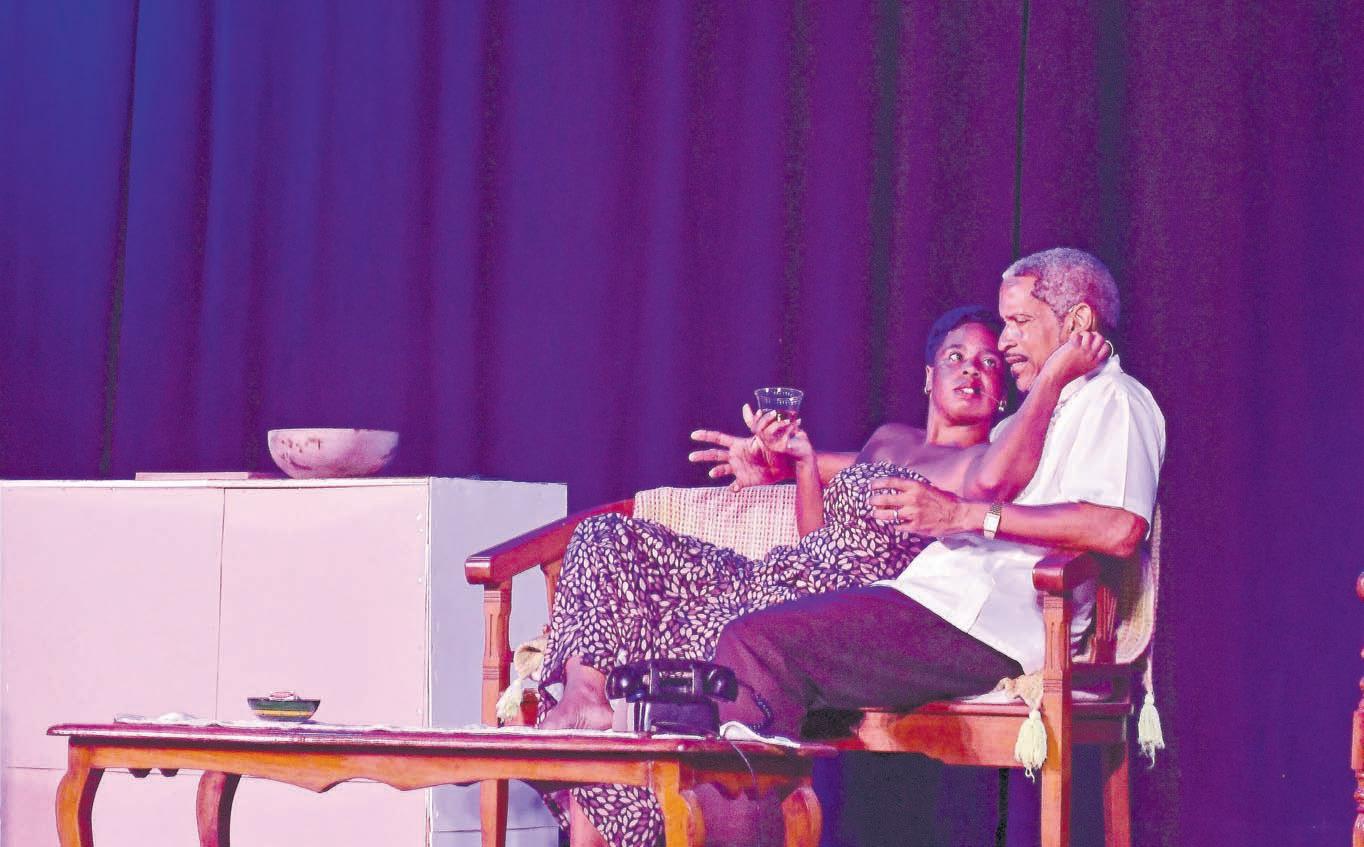


FOR LETITIA CHRISTIAN, a creative, her journey to the spotlight began with a simple flyer. Seeing an advertisement for the Youth Achieving Results (YAR) Programme, a performing arts initiative under the Division of Youth Affairs (DYA), she decided to take a leap of faith. That decision, driven by a desire to explore her interest in the arts, has led her to perform as a singer, dancer, and actress.
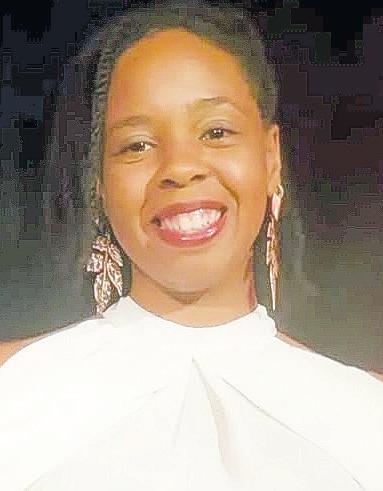
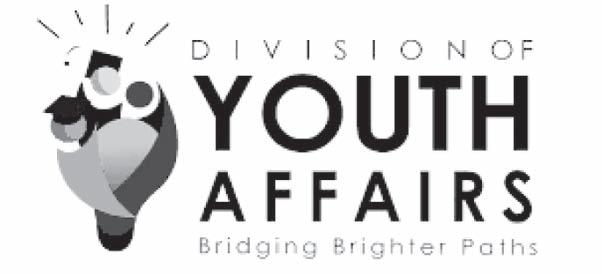
Letitia’s journey with the YAR programme was so significant that she participated twice, each time with a different group and new facilitators. Initially, the programme offered classes in voice, movement, technical theatre, and dance. Her training catapulted her to the stage, and she described her first experience as unforgettable. “The programme did bring me out of my shell a lot more, giving me the opportunity to perform at the graduation, and it would have been the first time that I would have ever sang on stage with lights, with backing instruments, and it was the most amazing thing for me at the time because I was extremely shy, extremely shy. So it did develop me in that aspect and get me out of my shell.”
A few years later, a surprising invitation to return to the programme allowed her to strengthen her skills under the guidance of well-known professionals like Geraldine Lynch, the late Sonia Williams and Michelle Cox.
“Having the opportunity to be in the programme twice and to have been taught by some of the most experienced in the different areas of the arts really, really, really shaped me in terms of understanding different arts, different dance forms as well, going from hip hop and street to more Caribbean folk and African, which I think was absolutely amazing.”
The YAR Programme not only helped Letitia develop technical skills but also built her personality and self-confidence. “While it did focus on the arts, it did help us, as young people, to be able to understand yourselves, to have that selfconfidence, to understand the things around you, dealing with conflicts, you know, all those personal development areas that young persons do need in terms of greater understanding of the new things we’ll be facing in life. It went hand-inhand with building personalities and persons into the young adults that they were becoming, or that they were already.”
Her hard work paid off. The foundations she built at YAR led to her performance in major productions, including Republic Day celebrations, last year’s Crop Over Folk concert, and most recently, in the play The Folks Who Live on the Hill, where she played Nina Simone. Without the programme, she said, “There’s absolutely no way this very extremely shy girl that could not get up and do anything would have been able to even get this far.”
According to Letitia, a programme like YAR is important for today’s youth because it fills a gap in traditional education by focusing on the arts practically. It creates “all-rounders” who not only have a creative passion but also understand the technical and logistical aspects of their work. “Even if you do not necessarily end up staying within the creative industry,” she said, “there are characteristics, skills, and opportunities that come from the programme to help young people grow.”
For any young person who may be afraid or hesitant to join a programme like YAR, Letitia has a strong message: “Take advantage of all of your opportunities.” She stressed that the programme is free and such opportunities become “slimmer and slimmer and slimmer” with age. She encourages them to “do it” even if they are scared. “I didn’t regret my experiences with YAR, as a matter of a fact, it has shaped me into who I am.” (SD)
THE PATHWAYS programme has also expanded to include a tailored curriculum for students with disabilities at the Ann Hill School. At right Elizabeth Bowen engaging with students of the school. (GP)

FOR YOUNG JOB SEEKERS in Barbados, the transition from school to work can be uncertain. Many lack the experience and confidence to handle a challenging job market. For over a decade, the Pathways Employability Programme, an important initiative within the Division of Youth Affairs, has been a lifeline for those wanting to prepare for the workforce. Programme Coordinator and Senior Youth Commissioner Elizabeth Bowen considers the programme a transformative intervention. “Sometimes our programme is a step between them, thinking that they are total failures and having hope and faith to continue down their journey,” she said. This philosophy has shaped the programme since it launched in the 2019 financial year, focusing on young people aged 18 to 24 who are not in school or work.
The Pathways programme is more than just a course; it’s a developmental journey aimed at building skills, boosting confidence, and preparing young individuals for the realities of modern workplaces. It starts with a one-month personal development and soft skills training, followed by an eight-week job attachment and a one-month review and separation phase.

ELIZABETH BOWEN, Senior Youth Commissioner and Programme Coordinator. (GP)
Bowen explains that her team has intentionally broadened the curriculum to address what today’s employers truly value. “We poured more into the programmes by not only helping young persons ready to meet an employer but also building on their soft skills,” she revealed. Beyond traditional skills, the programme offers psycho-social support, assigning each participant a certified counsellor to help with emotional intelligence, communication, and self-worth – areas that formal education often neglects.
The Pathways programme operates on the belief that a young person’s past – such as their academic history, school, or mistakes – does not define them. It welcomes everyone, from those who faced challenges in school to a young woman with a master’s degree looking to enhance her soft skills.
In today’s competitive environment, Bowen points out that employers seek more than just qualifications. “Some of them have indicated they would hire a person with a good attitude and fewer qualifications rather than someone who has all the qualifications but a bad attitude,” she said. Small victories are recognised as significant successes, whether it’s gaining work experience or landing an interview for the first time. “Even if they don’t get the job right away, that is also a success,” Bowen added. The programme has also expanded to include a tailored curriculum for students with disabilities at the Ann Hill School, with Bowen confidently stating, “We believe that persons with disabilities should not be cast aside.”
Looking ahead, the Pathways programme, through its full cohort, communitybased workshops, and the Camp Employable Minds, remains an open door, guiding the nation’s youth toward a future filled with confidence, purpose, and hope.
The programme’s success also stems from its strong partnerships with businesses that believe in second chances. While some employers struggle with challenges facing youth today, such as anger management and work-life balance, many have shown remarkable support. “They have worked with us on issues that the average employer might not overlook,” Bowen stated. “Instead of letting a young person go for a mistake, these partners reach out to the ministry for guidance on how to help.”
This collaborative spirit led to a strategic partnership with King’s Trust International (formerly Prince’s Trust International) in 2016, which introduced the popular “Get Hired and Get Into” programmes. This two-day workshop connects work-ready youth directly with employers for on-the-spot interviews and job opportunities. (SD)




























FOR THE DIVISION OF YOUTH AFFAIRS 30TH ANNIVERSARY FEATURE
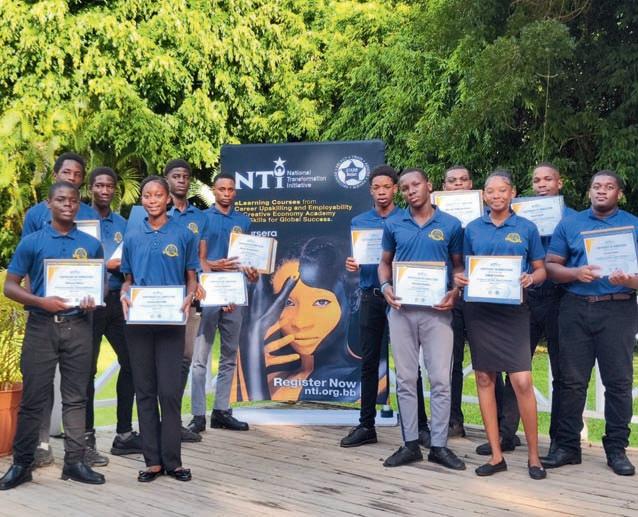
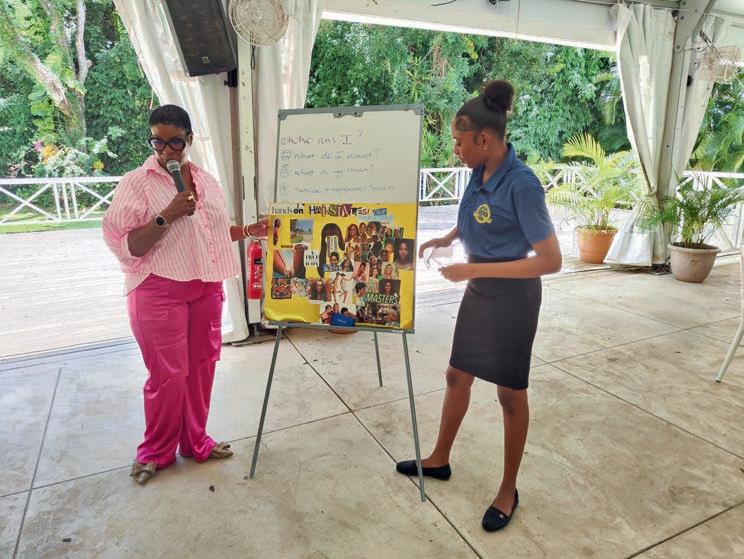







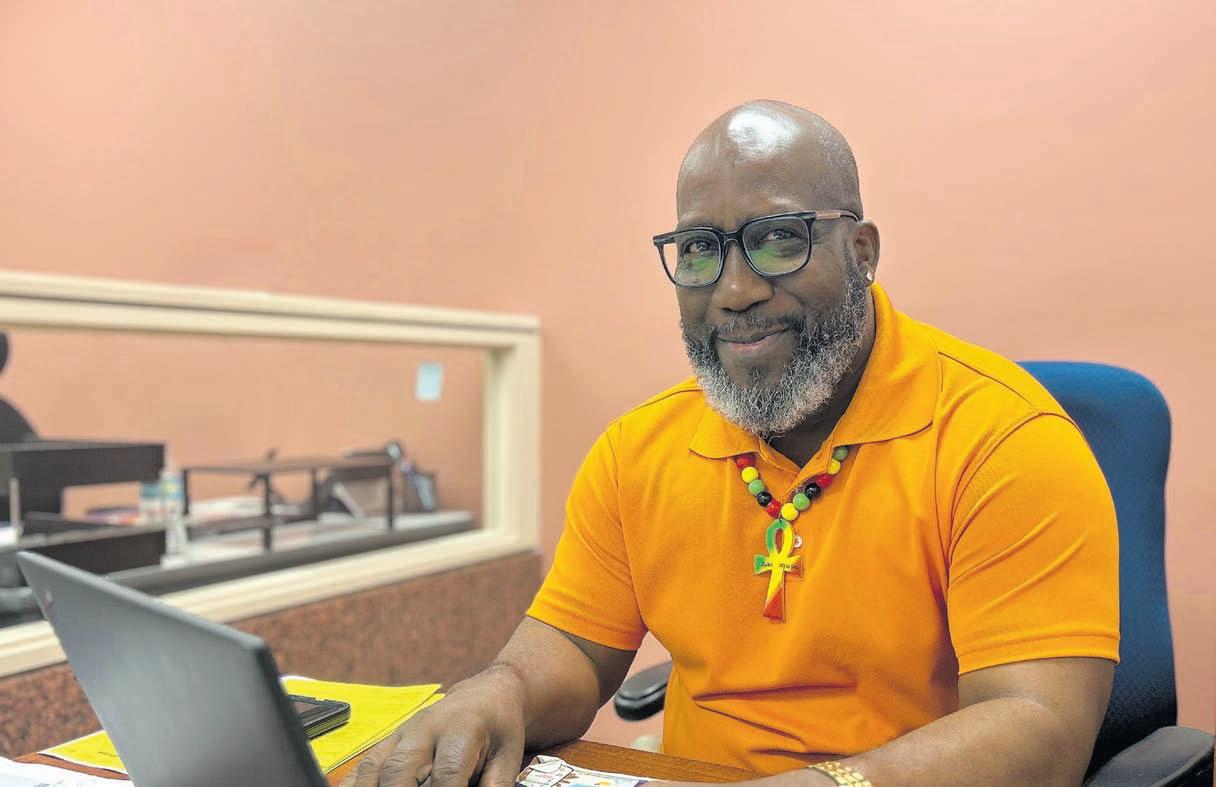
Every day, Marcus Stephen walks through communities across the island. His mission is to give young men and women on the block, who are in desperate need of a second chance, the opportunity to live their best lives.
Stephen leads a small but dedicated team in the Block Transformation Unit (BTU) of the Division of Youth Affairs. He says their job is to engage with people in their own environments.
“We have visited over 190 blocks across Barbados. Most of these young people never completed their secondary education, and some dropped out of school.”
The challenges are significant. Stephen pointed out issues such as unemployment, marginalisation, and the stigma of crime and violence.
But he believes the biggest misconception is that the blocks are a problem. He sees the men there as assets. “Sometimes the first responders [when incidents occur] are men on the block. They can be a positive force in the community.”
Stephen, however, admits the work comes with challenges. He shared, “I get grown men calling and crying for help, for some of these men, it’s what they yearn for.” He recalled heartbreaking stories of individuals who, despite their efforts to turn their lives around, were lost to the very violence they sought to escape. “I have certificates for young people who were killed while involved in Project Dawn.”
This is why the unit is more determined than ever to reach those who need help. The BTU team goes directly to the youth, evaluates their needs, and collaborates with major institutions like the Samuel Jackman Prescod Institute of Technology, the Barbados Community College, and the Barbados Vocational Board to provide the training they request. “It makes it easier for young people to join the programmes because they want to participate,” he noted.
He added, “To be offered an opportunity without needing any CSEC qualifications to join our programme opens up a new path for them to become more viable in the workforce and to be accepted.”
The programme offers a variety of courses, including masonry, carpentry, plumbing, heavy-duty truck driving, and bartending. It also addresses important life skills like conflict resolution, money management, and decision-making. Every participant receives a stipend, so they do not have to worry about basic needs like lunch or bus fare.
Beyond the block, the unit is also making a significant impact. Stephen, the Programme Coordinator, gets daily calls from the penal system, with men who are days away from release, asking to be put straight into a programme. He said that “Young people come out of the system, catch vans, and go straight to the Ministry, saying they want a change and want to make a difference.”
One of the most compelling success stories is that of George Oliver, a 62-year-old former criminal who sought a chance from the Ministry. Instead of formal
• Continued on next page.
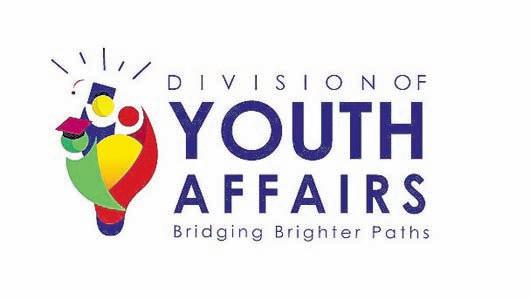
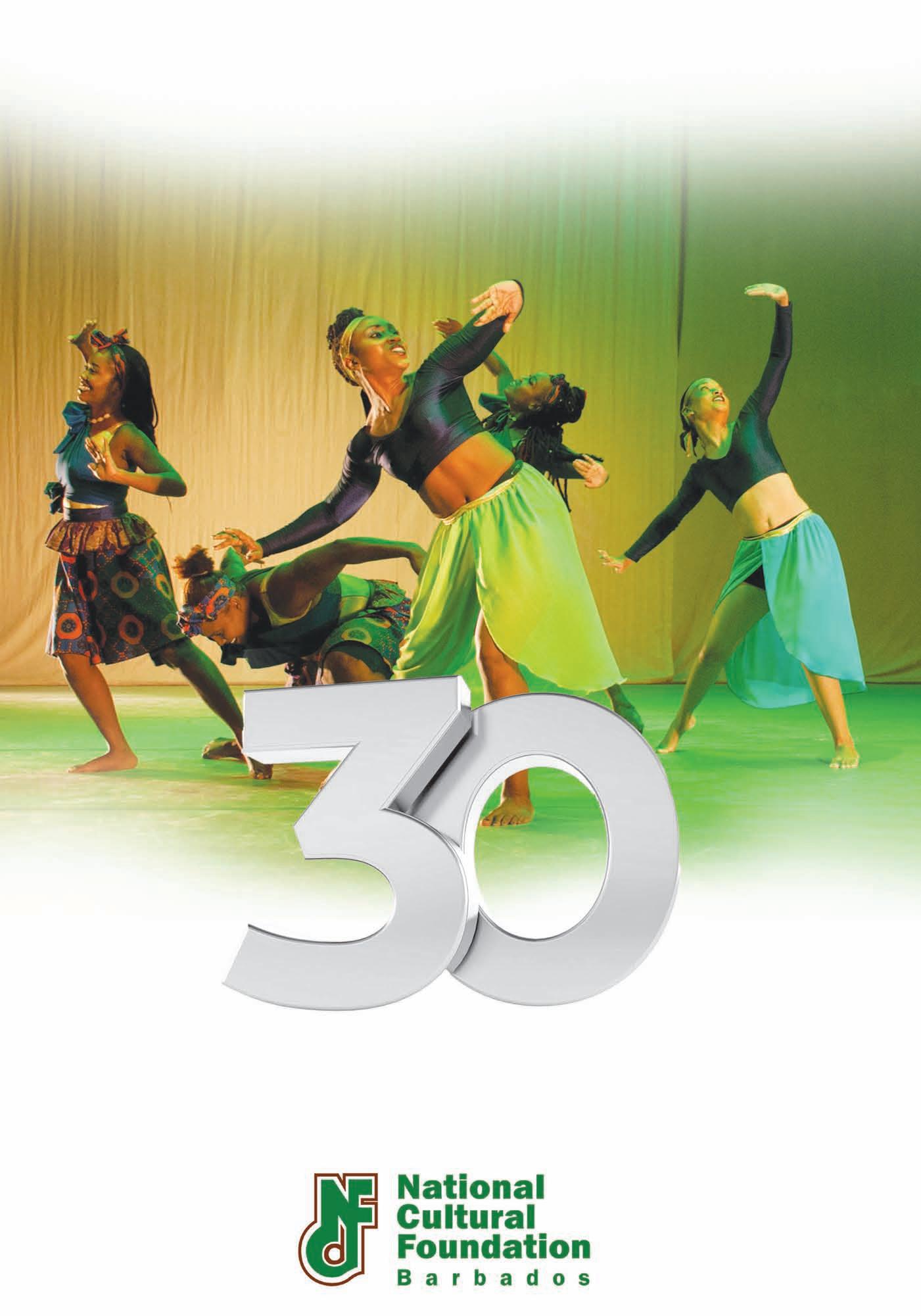
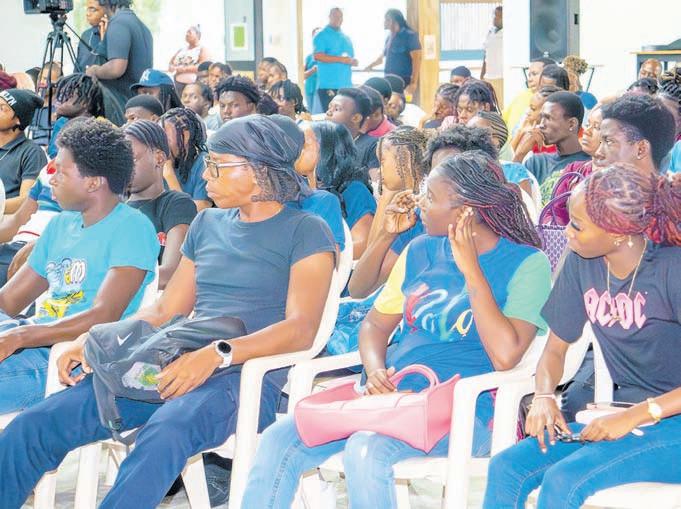
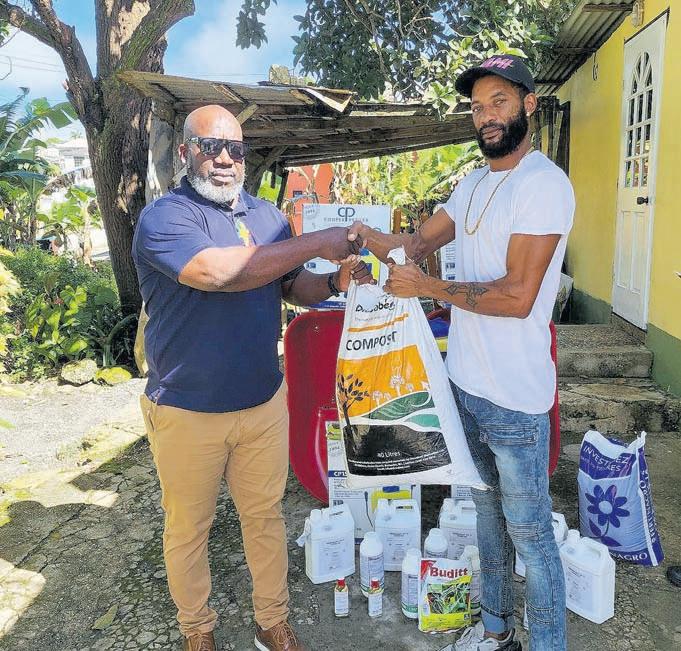
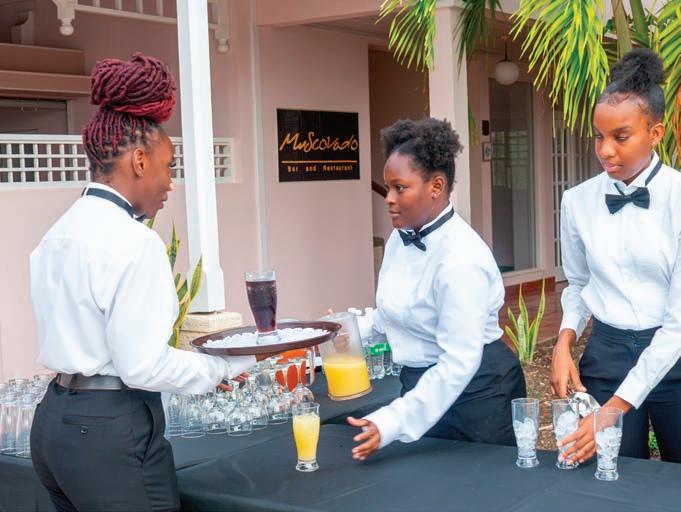
• From Page 21D.
training, the BTU helped him start a small business, recognising that some individuals are more interested in entrepreneurship. This new approach has helped the unit register over 50 businesses in the last two years, from landscaping equipment to small contracts.
Earlier this year, over 200 participants graduated from the BTU programmes. More than 400 people are currently engaged. “On January 26, we graduated 255 students from across Barbados. Right now, we have 277 students at the Polytechnic and 86 at the Barbados Vocational Training Board. Soon, in two weeks, we expect over 100 students at the Jean Norma Holder Hospitality Institute,” Stephen said. He is particularly proud that the unit has expanded its programme to include members of the disabled community. They have been working with students from the Challenor School to develop important life skills.
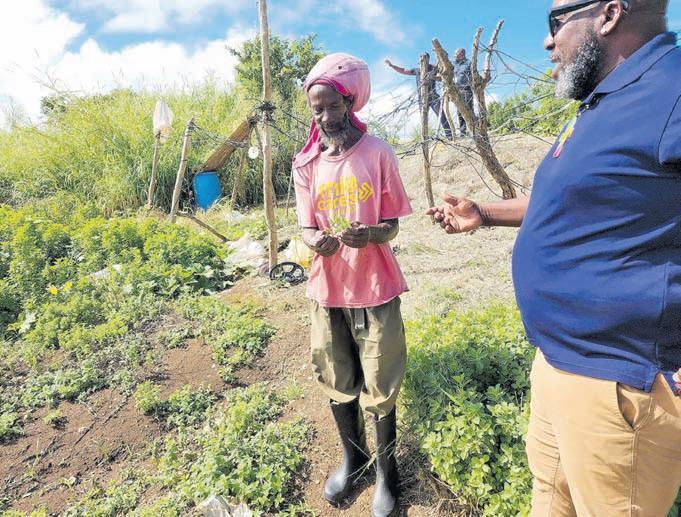
Stephen now hopes to extend the programmes to troubled students in the school system. “If you want change, you have to start early. We are planning to go into schools and work with Guidance Counsellors to identify students who may be struggling. We will see what programmes we can offer within the Ministry.”
He highlighted that the programme not only builds skills and competencies but also fosters community support. Participants give back in various ways. Landscapers clean schools or assist elderly homeowners for free, while farmers contribute a portion of their vegetables.
Stephen believes the Unit is needed now more than ever. He urges the public to give youth a chance and encourages young people to step up and meet expectations.
“They just need support and encouragement. That’s what matters most. . . . We ask society to offer them an opportunity and it has to work both ways. The men must also show respect. To whom much is given, much is expected,” he stressed. (SD)































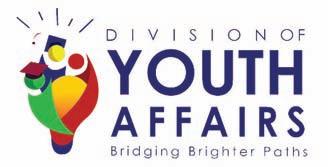











































































WHEN SIERRA CALLENDER left school, she was anxious to make her way in the world of work, but she soon realised that finding the right opportunity wouldn’t be easy. The ambitious teenager, who attended the Samuel Jackman Prescod Institute of Technology, dreamed of starting her own business. She began with hair braiding and graphic design, but she needed a hand up to expand her services.
A chance encounter with the programme coordinator of Project Dawn delivered just what she needed. The Project Dawn team helped her acquire much-needed equipment, and Callender credits the programme with shaping her into the businesswoman she is today. “They really supported my dreams,” she said. “I was able to improve my services and attract more clients.”
Beyond the initial support for her two businesses, Project Dawn also introduced Callender to a new skill set – a beginner’s nail course. She learned how to apply nails, handle damaged nails, and advise clients – skills she now hopes to build on by taking the advanced course and adding a third business to her portfolio. “They were very supportive and very kind in terms of being able to guide me and help me in areas where I wasn’t too keen,” Callender recalled. “They were very patient with me as well. I would say my peers were very engaging. It was never an uncomfortable moment or a time where it was tense. They were all like family.”
The programme not only helped Callender develop technical skills but also key soft skills. “I developed great communication skills,” she said. “I learned to be confident and speak up for myself, ask questions if I’m not too sure – those are some of the main skills that I learned.”
Callender highly recommends Project Dawn to other young people because it “provides real support to participants to help them find their passion”. She believes the programme’s approach, which encourages creativity and positivity, helps prevent young people from being idle and instead helps them

“get ahead in their life”.
With her hair braiding, graphic design, and nail care business in the making, Callender is embracing her journey as an entrepreneur. She fully credits Project Dawn, saying, “It’s the best community for young people that I have ever experienced.”
She added that the programme’s supportive environment and guidance have given her the confidence to expand and make a better life for herself. “They won’t push you into a different direction, something that you wouldn’t want to do,” Callender said. “The Project Dawn community – they inspire and they push you to be the best person you can be.” (SD)
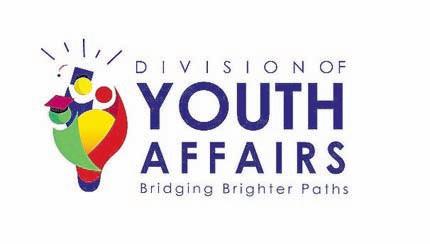



























































































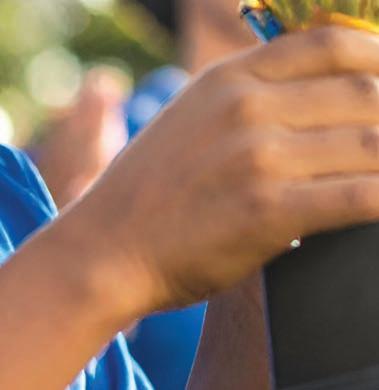






The Division of Youth Affairs within the Ministry of Youth, Sports & Community Empowerment has charted a path for thousands of young people in Barbados for more than two decades. The Division has played a critical role in their development and assisted in steering them to become productive members of society.
The National Sports Council has had the pleasure of working with the Division of Youth over the years, to propel young people throughout communities across Barbados and ensure their continued development.
The Board, Management & Staff of the National Sports Council congratulates the Division of Youth on a stellar 30 years and look forward to more collaborations.




